Muslim Brotherhood’s







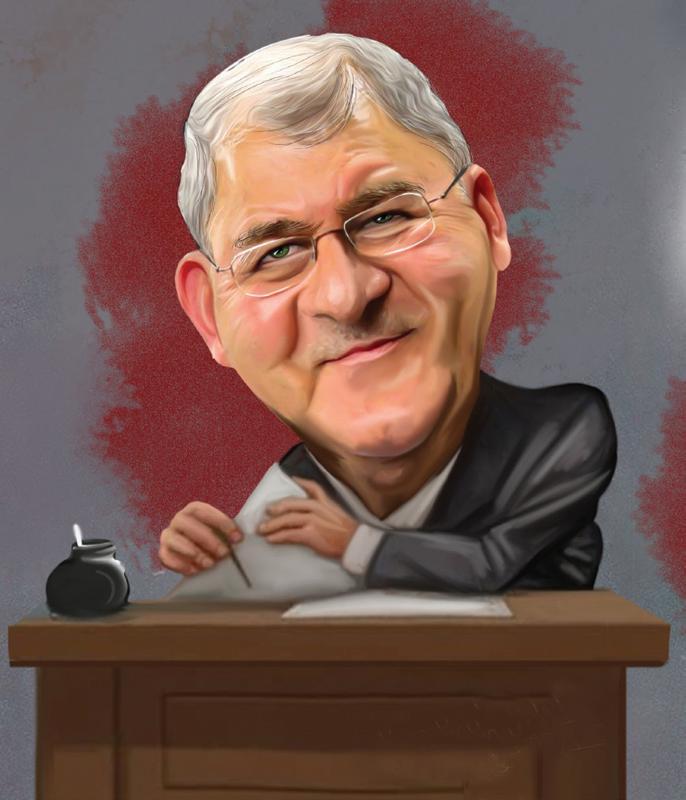


The latest episode in the internal conflict within the Muslim Brotherhood group is a “war of documents.” In the cover story, Dalia Ziada talks about how the war of documents is the theme defining the group’s internal conflicts.
In mid-October, the London-based front, under the leadership of Deputy Supreme Guide Ibrahim Munir, published a “Political Document” to pre-empt the announcement of the Change Front’s document.
The Change Front is a jihadist youth faction inside the Muslim Brotherhood that introduces itself as an alternative to the fighting elders.
The so-called “Change Document” carried the logo of the Muslim Brotherhood and was introduced in the name of the group’s General Office. In the lengthy document, the Change Front leaders appropriated the right to speak in the name of the Muslim Brotherhood, the Egyptian people, and even the Egyptian Arab Spring revolution. They tried to introduce their vision, which mostly revolves around the concept of violent jihad, as the best solution to the ongoing leadership crisis in the group, as well as the ongoing economic crisis in Egypt. They unambiguously called for a revolution against the existing ruling regime in Egypt.
In the Politics section, Jiwan Soz interviews a Russian researcher to explore the effects of the Russian-Ukrainian war on the economies of the Arab world.
The Russian researcher said that Arab energy-exporting countries such as Algeria and Iraq were more affected by the war due to the previous repercussions of the coronavirus outbreak and the presence of civil unrest, in addition to their high population density, which means that they will suffer from major economic repercussions.
In the Politics section, Suzan Quitaz also explores how a Kurdish general believes that the Iranian protests are not just unrest, but also a revolution.
Commander General of Kurdistan National Army, Gen. Hussein Yazdanpana, and the leader of Kurdistan Freedom Party (PAK), whose fighters have been engaged in an armed struggle against the Iranian regime for decades, said that the demonstrations and the uprising are the result of the regime›s oppression and crimes against the people.
“The people themselves have taken to the streets to end the occupation, repression, and looting. We support them, but we have not made any armed contributions,” he said.
In the Environment section, Wael Salem writes about the series of Egyptian initiatives aimed at addressing the negative effects of climate change in its preparations to host the 2022 United Nations Climate Change Conference (COP27), slated for November in Sharm el-Sheikh.
In August, the Egyptian government announced a presidential initiative to plant 100 million trees nationwide and started the first phase of this initiative this week. In the Culture section, Sara Gamal writes about Trianon Restaurant, also known as «Alexandria›s Groppi,» which is a Greek-origin restaurant located in Alexandria›s city center.

The restaurant’s journey began in 1905 by offering a variety of sweets and being a cafe where people could gather for a quick meal, especially because of its location at the intersection of three main streets, Saad Zaghloul Street, Safeya Zaghloul Street, and the street overlooking Alexandria›s eastern port in Ram.
Read these articles and more on our website eng.majalla.com. As always, we welcome and value our readers’ feedback and we invite you to take the opportunity to leave your comments on our website.
A Weekly Political News Magazine www.majalla.com/eng

10th Floor Building 7 Chiswick Business Park 566 Chiswick High Road London W4 5YG Tel : +44 207 831 8181Fax: +44 207 831 2310
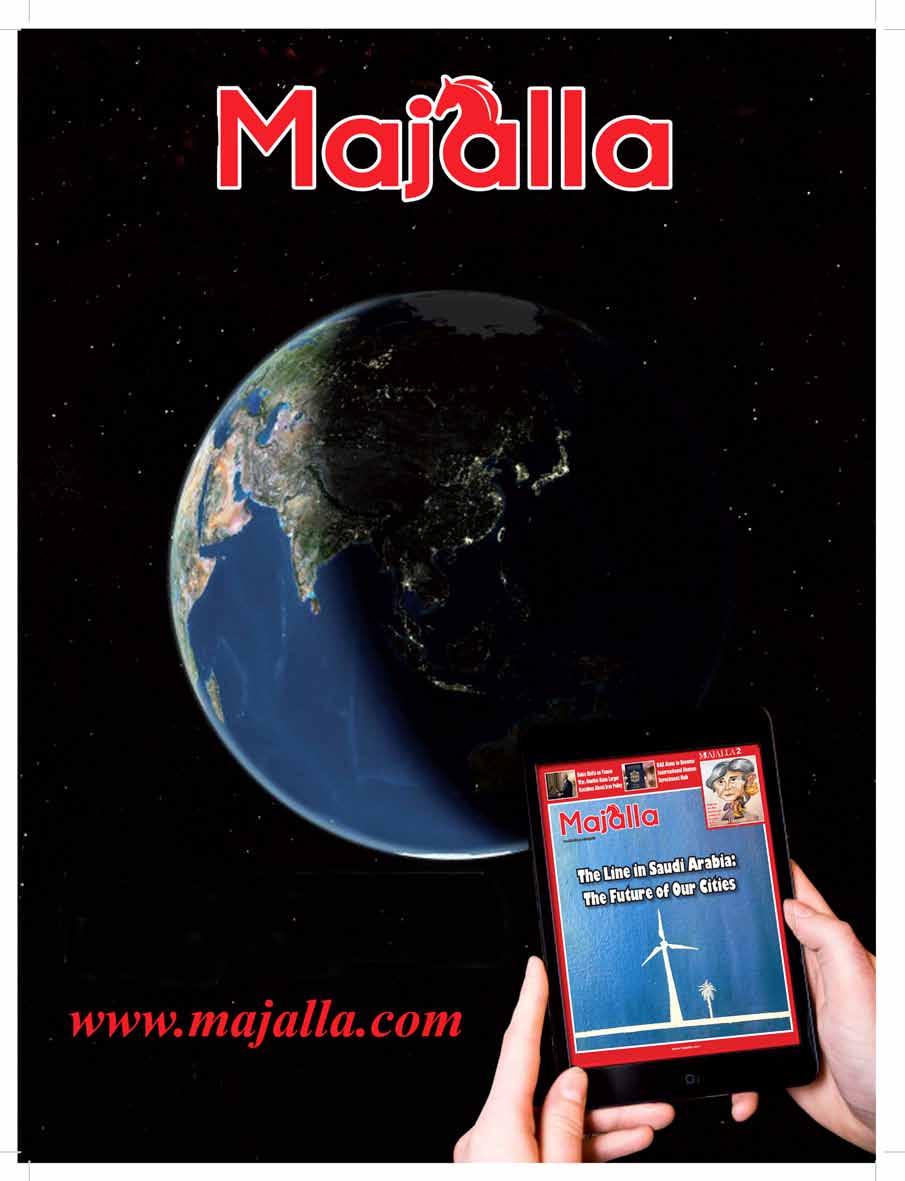

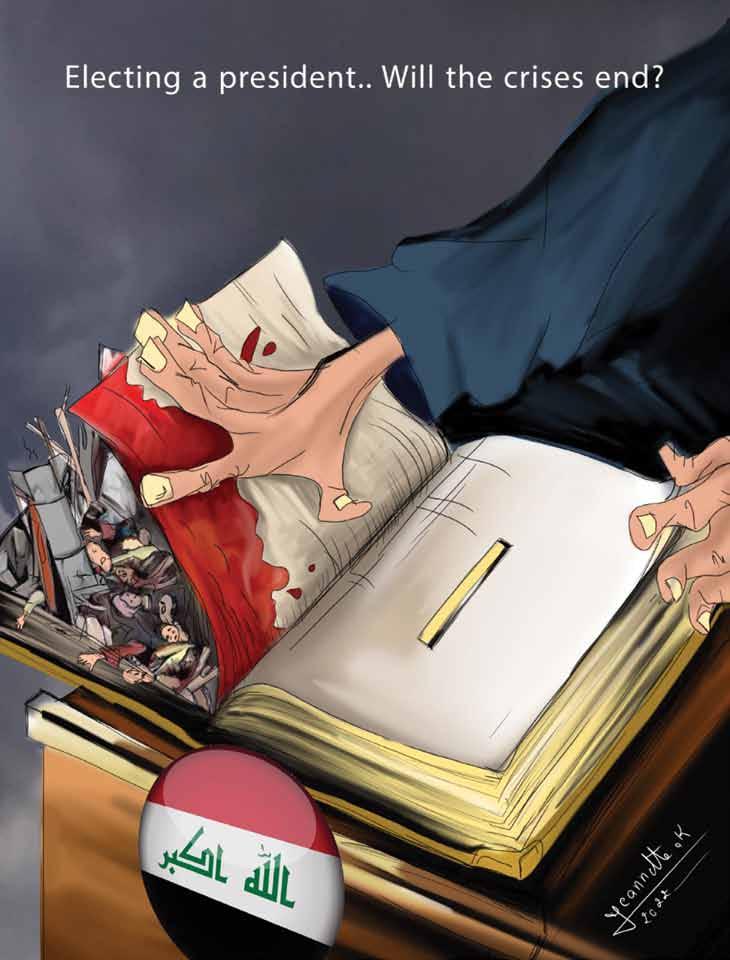
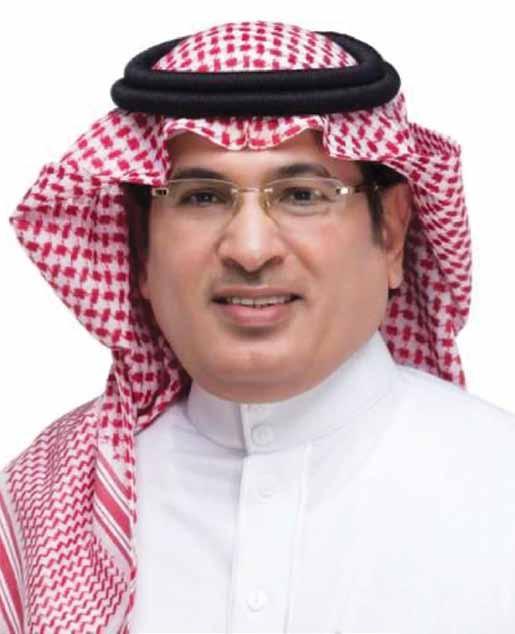


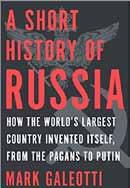

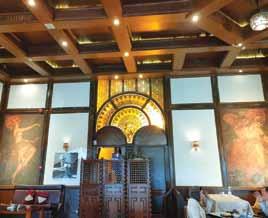

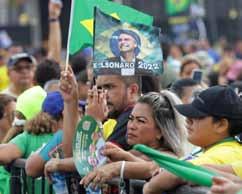
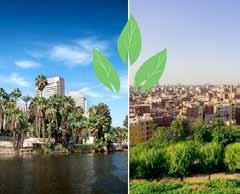

The Golden Canary Diamond is on display at Sotheby’s Dubai gallery, in Dubai, United Arab Emirates, 17 October 2022. Sotheby›s Dubai is displaying one of the largest, historic flawless diamond weighing 303.1 carats which will be auctioned. /EPA



The Golden Canary Diamond display in Dubai



A visitor takes a picture of “La stanza della madre” artworks by USItalian artist Francesco Clemente during the presentation of the “25 Years of the Museum Collection” exhibition on the 25th anniversary of the Guggenheim Museum Bilbao in the Spanish Basque city of Bilbao on )October 18, 2022. AFP
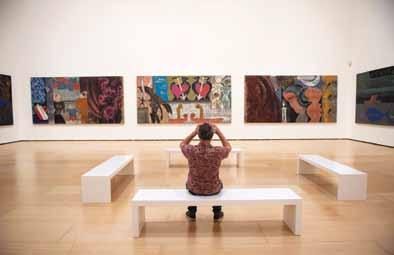
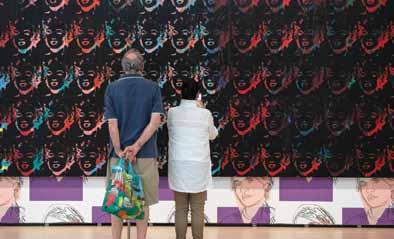
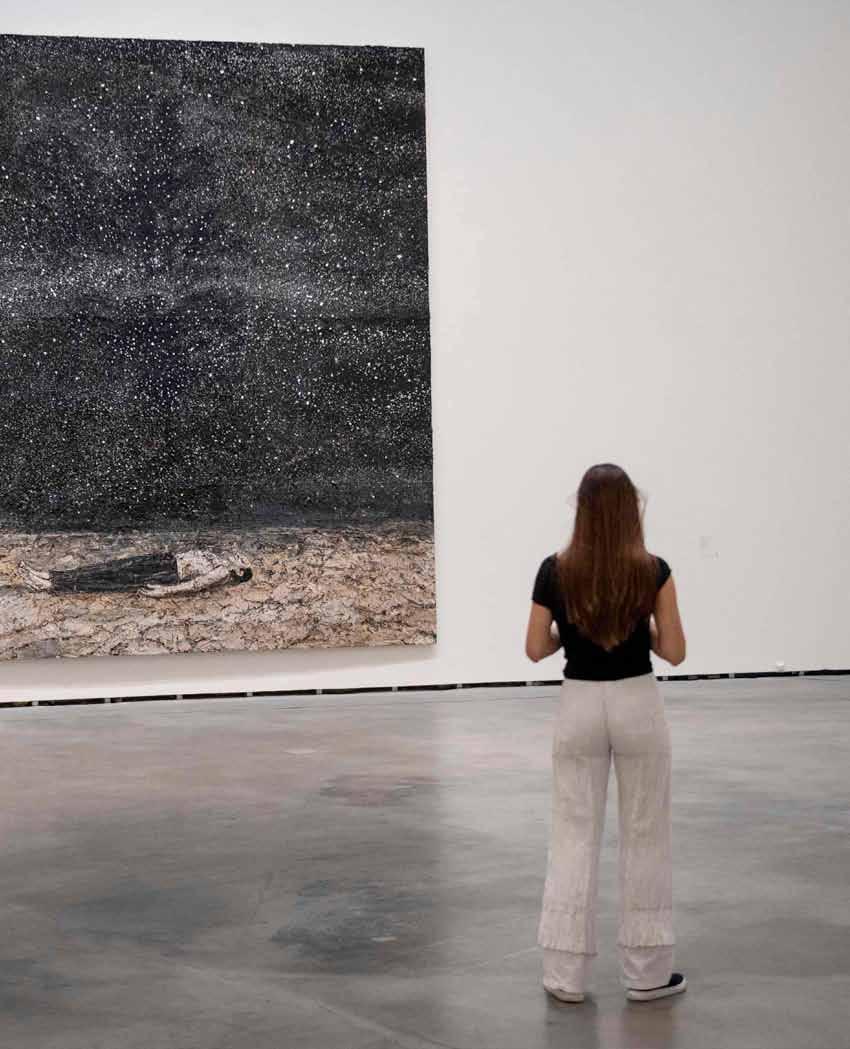
Egypt has nalized a sta -level agreement with the international monetary fund (IMF) on the components of its program, and will issue an announcement "very soon," the country's nance minister said on Sunday. "Very productive bilateral discussions were held with IMF sta on the sidelines of the IMF and World Bank's annual meetings in Washington, and signi cant progress was made across all policies," Mohamed Maait said in a statement.
Egypt began talks with the IMF for a nancial support package in March, soon after the Ukrainian crisis threw its already unsettled nances into further disarray and led foreign investors to pull nearly $20 billion out of Egyptian treasury markets in a matter of weeks.
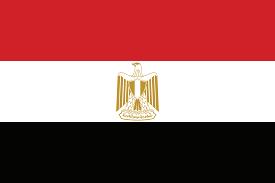
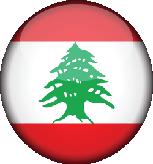
The Lebanese army said on Tuesday that an Israeli gunboat had violated Lebanese territorial waters on Monday morning, an allegation denied by Israel in the second such dispute this week as the countries work toward a maritime border demarcation.
The alleged naval incursion took place in an area of the Mediterranean sea opposite Rosh Hanikra, the Lebanese army said.
In response, an Israeli military spokesperson said "there was no crossing" into Lebanese territorial waters on Monday.
The countries are technically at war but this month clinched a U.S.-brokered agreement to demarcate a maritime border.
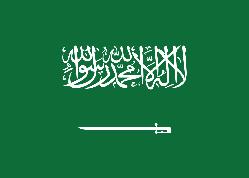
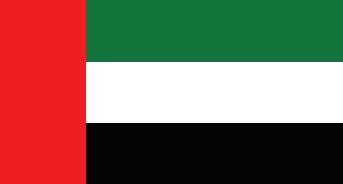 SAUDI
SAUDI
Arabia will provide $400 million in humanitarian aid to Ukraine, Saudi state news SPA announced Saturday, adding that prince Mohammed bin Salman made a to Ukrainian President Volodymyr on Friday.
prince expressed the kingdom's to continue e orts of mediation, and support e orts that contribute to de-escalation, SPA added.

The United Arab Emirates believes OPEC+ made the correct technical choice when it agreed to cut production targets and the unanimous decision had nothing to do with politics, energy minister Suhail al-Mazrouei said on Tuesday. His comments came after several members of the oil producers group endorsed the steep cut to output targets agreed this month after the White House accused Saudi Arabia of coercing some other nations into supporting the move, a charge Riyadh denies.
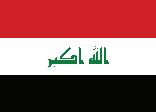
The Republic of Iraq con rms that OPEC+ oil production quotas is attached to market stability and requirements.
In a statement, the Iraqi Foreign Ministry said that it is following the responses of OPEC+ decision on oil production cuts and its repercussions.
It added that the approach adopted within the group re ects a technical vision attached to oil market stability and requirements, regulating the o er and demand process and protection of producers and consumers alike.
The statement added that the ministry rejects any policy aiming to mount pressure and supports the cartel's position, particularly the Kingdom of Saudi Arabia.
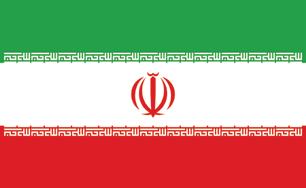
Eight prisoners died as a result of a re at Tehran's Evin prison over the weekend, Iran's judiciary said on Monday, doubling the death toll from the blaze which has increased pressure on a government struggling to contain mass protests.
The death of 22-year-old Mahsa Amini on Sept. 16 while in police custody has sparked protests across the country which the authorities have been trying to put down by force.
Iran's judiciary said all the victims of the prison blaze had been held in a section of the prison designated for prisoners of robbery-related crimes. Evin also holds political prisoners and many detainees facing security charges, including Iranians with dual nationality.


The Biden administration said on Wednesday it is awarding $2.8 billion in grants to boost U.S. production of electric vehicle batteries and the minerals used to build them, part of a bid to wean the country o supplies from China.
Albemarle Corp is among the 20 manufacturing and processing companies receiving U.S. Energy Department grants to domestically mine lithium, graphite and nickel, build the rst large-scale U.S. lithium processing facility, construct facilities to build cathodes and other battery parts, and expand battery recycling.
The U.S. and Canada sent armored vehicles and other supplies to Haiti on Saturday to help police ght a powerful gang amid a pending request from the Haitian government for the immediate deployment of foreign troops.
A U.S. State Department statement said the equipment was bought by Haiti’s government, but it did not provide further details on the supplies own on military aircraft to the capital of Port-au-Prince.
A spokesman for the U.S. military’s Southern Command said he could not provide further details on the supplies sent, though he added it was a joint operation involving the U.S. Air Force and Royal Canadian Air Force.
Liz Truss said on Thursday she was resigning as British prime minister, brought down by her economic program that sent shockwaves through the markets and divided Conservative Party just six weeks after she was appointed. "I came into o ce at a time of great economic and international instability. Families and businesses were worried about how to pay their bills, Putin's illegal war in Ukraine threatens the security of our whole continent and our country has been held back for too long by low economic growth.”
was minister, her great businesses their whole been
Russian President Vladimir Putin declared martial law in the four regions of Ukraine that Moscow annexed and gave all regional governors in Russia emergency powers that open the door for sweeping new restrictions throughout the country. Putin didn’t immediately spell out the steps that would be taken under martial law, but said his order was e ective starting Thursday. His decree gave law enforcement agencies three days to submit speci c proposals and ordered the creation of territorial defense forces in the annexed regions.
INDIA.

India's opposition Congress party declared veteran leader Mallikarjun Kharge its new chief on Wednesday, the rst person from outside the in uential Nehru-Gandhi family to hold the beleaguered party's presidency in 24 years.
China on Thursday defended its more assertive approach to the foreign policy taken under President Xi Jinping and said its diplomats will "dare to ght" despite criticism that its so-called Wolf Warrior stance can back re on the global stage.
Chinese diplomats in the UK are under scrutiny this week after a Hong Kong protester was seen being dragged into the Chinese consulate in Manchester on Sunday and assaulted in an incident that the police are investigating.

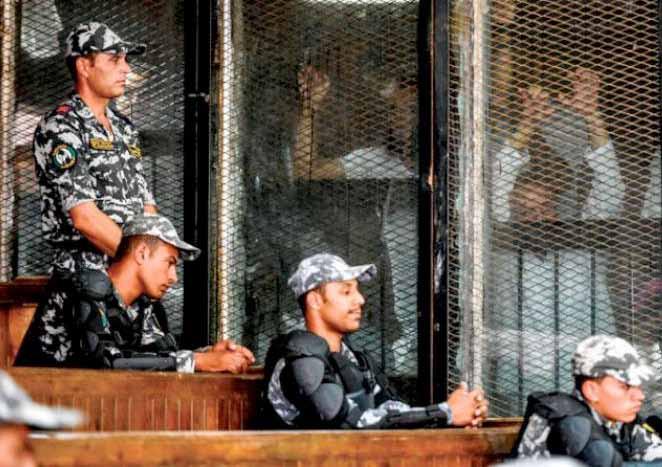 By Dalia Ziada
By Dalia Ziada
The “war of documents” is the theme defining the latest episode of the internal conflicts within the Muslim Broth erhood group. In mid-October, the London-based front, under the leadership of Deputy Supreme Guide Ibrahim Munir, published a “Political Document” to forestall the announcement of the Change Front’s document. The Change Front is a jihadist youth faction inside the Muslim Brotherhood that introduces itself as an alternative to the fighting elders.

The conflict between the group’s leaders reached a peak last year when the standoff between the Istanbul-based Mahmoud Hussein front and the London-based Ibrahim Munir’s front escalated from randomly throwing media statements at each other to exchanging serious accusations of administra tive and financial corruption. The leaders’ rivalry pushed the century-old group to the edge of a cliff, especially as it coincided with a sharp decline in funding and popular base support.
Amidst leadership conflicts, the Muslim Brother hood’s younger members, who have been working under the umbrella of Hussein’s front in Istanbul for seven years, decided to use the momentum of po larization and division inside the group to ascend as the new leaders. They have been active since 2015 under the title of “Kamalists.” In late 2020, they changed their title to the Change Front, ran internal elections, and designed their own bylaws separate from the rules set by the group’s leadership.
The Kamalists are a group of Muslim Brotherhood youth, who were trained by Mohamed Kamal, one of the most prominent mid-level leaders of the Egyp tian Muslim Brotherhood. Between 2013 and 2014, Kamal organized several violent attacks on civilians and state facilities in Egypt in order to avenge the ouster of the Muslim Brotherhood regime from pow er. He used the anger of the group’s youth to fuel those attacks. His goal was to cause extreme chaos that would force the military to return the Muslim Brotherhood regime back to power.
After Kamal was killed in a clash with the Egyp tian police forces in late 2014, his affiliated youth groups went on to form their own militias. The most famous of these militias are HASM and Liwa AlThawra, which are designated as foreign terrorist organizations in the United States. HASM leaders fled to Turkey in early 2015. From there, they con tinued to command operations using the younger Muslim Brotherhood members who could not leave the country. Senior state officials and police and military personnel were the main targets of HASMled operations. Their biggest crime was the assas sination of the Egyptian Attorney General, Hisham Barakat, in June 2015.
Two of the HASM leaders spoke at the Change Front’s conference which was held in Istanbul earli er this month. They endorsed the Change Front doc
ument and asserted the importance of “waging jihad against the Egyptian state.” The Egyptian people and leadership watched the scene with much disap pointment in Turkey’s leadership, which previously promised to limit the Muslim Brotherhood activities on Turkish land as part of a political rapprochement with Egypt. The Turkish state has previously de clined to extradite the Muslim Brotherhood mem bers living in Turkey to the Egyptian authorities. The Egyptian judiciary has already charged most of them with committing acts of terrorism. HASM leaders are at the top of the list. The reappearance of HASM in Istanbul openly inciting violence against the Egyptian state will most likely harm the already slow reconciliation process between Cairo and An kara.
The so-called ‘Change Document’ carried the logo of the Muslim Brotherhood and was introduced in the name of the group’s General Office. In the lengthy document, the Change Front leaders, took the liberty to speak in the name of the Muslim Brotherhood, the Egyptian people, and even the Egyptian Arab Spring revolution. They tried to introduce their vision, which mostly revolves around the concept of violent jihad, as the best solution to the ongoing leadership crisis in the group, as well as the ongoing economic crisis in Egypt. They clearly called for a revolution against the existing ruling regime in Egypt.
The Change Document started by reviewing the mis takes committed by the Muslim Brotherhood leaders
Amidst leadership conflicts, the Muslim Brotherhood’s younger members, who have been working under the umbrella of Hussein’s front in Istanbul for seven years, decided to use the momentum of polarization and division inside the group to ascend as the new leaders.
during the recent political stages through which the group has gone, extending from “the revolution and the [Muslim Brotherhood’s] state ruling phase, as well as the mistakes committed by the group’s al lies and competitors, in the context of the Egyptian revolution.” The purpose of this review, as the docu ment explains, is to build a new vision to liberate the Egyptian people from the grip of what they call a “military capitalist” system. The vision, however, is set to be implemented by “establishing a system of governance that is compliant with Islamic Sharia.”
Later in the document, one may not be surprised to see that the Muslim Brotherhood’s Change Front is playing with terminology to falsely hide their selfcentered goals in the details of the bigger picture
of Egypt’s political scene. When they speak about “freeing Egyptians,” they actually mean releasing the detainees of the Muslim Brotherhood from pris ons by applying force on the existing regime. In their new guiding document, the Change Front de scribes the Muslim Brotherhood prisoners as “hos tages to the military authority in Egypt.” They claim that the successor military-led regime that ruled Egypt detained the members of the Muslim Brother hood “to protect their rule and bury any expected revolutionary spark against them.”
In what seems to be direct permission to the group’s prisoners to manipulate the Egyptian authorities, the document encouraged them to do whatever they think is necessary to convince the Egyptian authori ties to release them. That includes, for example, lying about their willingness to renounce their ideological beliefs and disown the Muslim Brotherhood. This tactic has been used by several extremist groups in the past to deceive the authorities and leave prison.
“The detainees are the masters of their own minds when it comes to dealing with the military author ity… Every prisoner has the right to choose his strategy to obtain freedom,” stressed the docu ment after declaring that the Change Front, which assigned itself as the new leading power of the group, will not force the Muslim Brotherhood
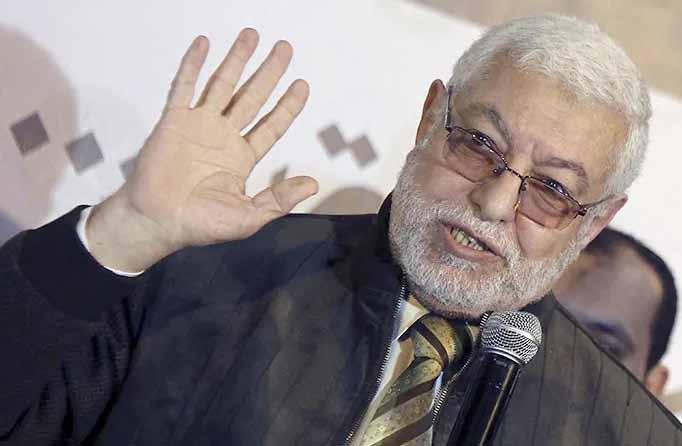
The so-called ‘Change Document’ carried the logo of the Muslim Brotherhood and was introduced in the name of the group’s General Office.
over story
prisoners to abide by collective decisions.
Nonetheless, the document asserted that individual attempts of the prisoners should happen in paral lel with applying external pressure on the Egyp tian leadership to force the release of the Muslim Brotherhood prisoners. “The authoritarian regimes throughout history do not release political detain ees voluntarily except under real pressure exerted by the forces of change and liberation movements,” emphasized the document. “The military regime in Egypt will not resolve the political detainees’ crisis unless a revolution applies pressure on it to do so.”
Ironically, the Muslim Brotherhood’s Change Movement is introducing itself as the master of this prospective revolution and the one who will take Egypt’s leadership after it happens. They even pro posed a “social contract” between the citizens and their prospective Sharia rule. With utter illogical contradiction, the so-called social contract speaks about empowering civil society, fighting corrup tion, and encouraging co-existence and freedom of speech.
Most of the principles of this so-called social con tract are playing on the soaring strings of the current economic crisis in Egypt, by focusing on redefining
the economic relationship between the state, the mil itary institutions, and the private sector businesses. The Muslim Brotherhood’s contract claimed to be, “guaranteeing economic competitiveness, increas ing the national productivity and sources of income, eliminating poverty, and encouraging the peaceful transfer of political power.”
The fun part, though, is what the document describes as the methodology by which the Muslim Brother hood’s Change Front is going to implement its plan of mobilizing the public to start a revolution that brings the Muslim Brotherhood back into power. They said that they will free themselves from the centrist approach that led to the failure of the group’s rule in 2013. They insist on practicing political ac tivism “within the general framework of national concerns,” by discretely infiltrating into other politi cal factions whose interests intersect with theirs.
“We will allow the Muslim Brotherhood members, youth, specialists, and scholars to engage in political activism through working under different [Egyptian] political parties and movements that correspond to our vision of national renaissance,” the document noted. That seems like permission to the youth of the Muslim Brotherhood who still live in Egypt to start joining liberal and leftist political parties and
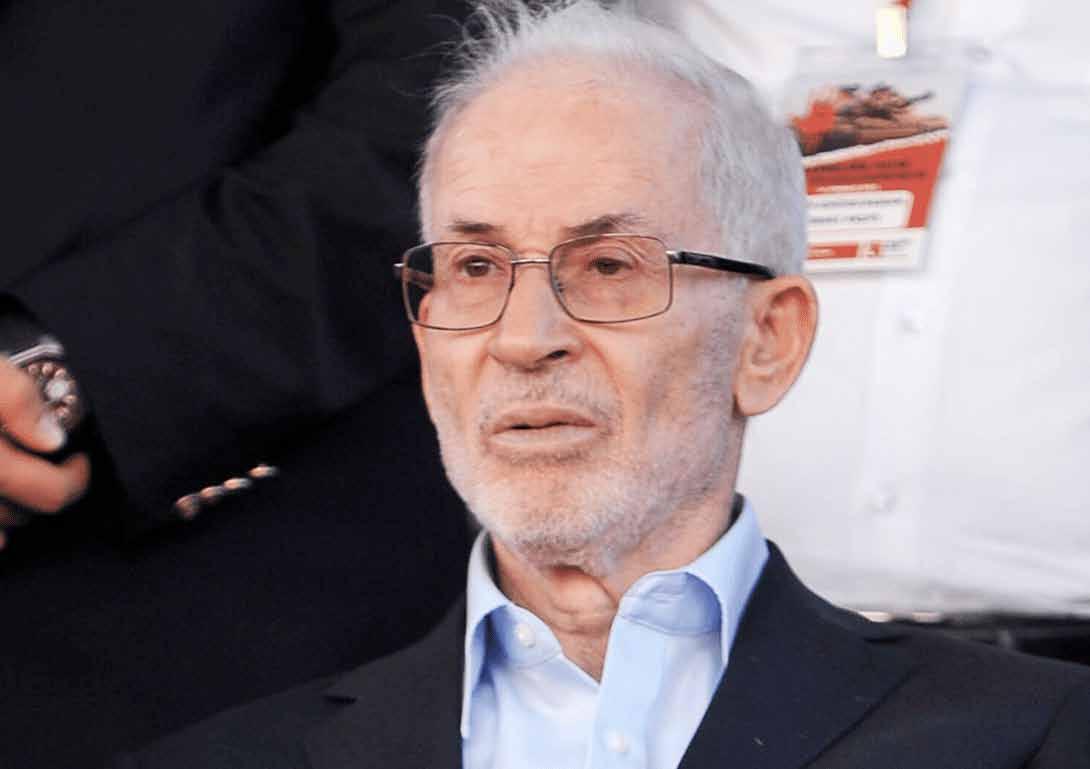 Ibrahim Munir
Ibrahim Munir
movements to revive the social power of the group among grassroots citizens the same way the previous generation of the Muslim Brotherhood did in the late 1990s and early 2000s, under the Mubarak regime.
In clear contrast to the Change Front’s rebellious approach, the Ibrahim Munir front in London seeks reconciliation with the Egyptian people and the mili tary institutions. On more than one occasion, Munir confirmed that he and his followers are giving up on political competition for power in Egypt. “We com pletely reject violence and we consider it outside the ideology of the Muslim Brotherhood – not only the use of violence and arms but to have a struggle for power in Egypt in any form,” Munir told Reuters in an interview in July. “We reject the struggle for power even if between political parties through elec tions organized by the state. This is rejected by us.”
On the eve of the Change Front’s conference, Mu nir’s front allowed affiliated news sites to publish a “Political Document” that was internally distributed in mid-September. The Political Document echoes Munir’s press statements about the group’s desire to reconcile with the Egyptians and return to prac ticing social, rather than political, activities inside Egypt. The document avowed that “seeking power is not anymore one of the group’s goals.” Similar to the Change Front’s document, Munir’s document is implicitly assuming that the current Egyptian state is about to collapse amidst the current economic cri sis in Egypt. It thus introduces the group’s vision
of what the Muslim Brotherhood will do when this happens.

Munir’s document sets three political priorities for the Muslim Brotherhood, regarding its work in Egypt, in the coming period, which the document describes as a “critical moment in Egypt’s history.” These priorities are, “closing the political detain ees’ file, reaching societal reconciliation, and build ing a broad partnership with national factions that responds to the demands of the public, in terms of achieving political and economic reform.” The doc ument asserted that realizing these priorities requires the Muslim Brotherhood to “overcome the power struggle in a political environment dominated by po larization and incitement, and in a society facing the specter of division.”
The Political Document also emphasized the group’s need for national collaboration with other active po litical and social groups, similar to what the Change Document noted. However, Munir’s front sees this political collaboration as a means to “contribute to saving the nation” through working with a “na tional coalition, that excludes no one, to achieve the ‘Bread, Freedom, Social Justice, and Human Dig nity’ [which was the main slogan chanted in 2011 revolution].”
Munir’s document also highlighted the need for re forming the governance system, ending corruption, and guaranteeing freedom of expression and free dom of belief to all Egyptians. That carries a direct message to the Egyptian Coptic Christian citizens, who were among the socio-political groups that most vigorously opposed the Muslim Brotherhood rule in Egypt in 2013. “We are responsible, along with other national partners, to exert the necessary effort to build a national consensus that befits the sacri fices of the Egyptians,” Munir’s document asserted. “This inclusive partnership will happen through full democratic practice, which sincerely embraces the Egyptian national fabric, Muslims, Christians, Is lamists, liberals, and leftists. Men and women, old and young, labor and businessmen, educated and il literate.”
Guiding documents have always been the main tool of communication between the Muslim Brotherhood leadership, younger affiliates, and supporting bases.
Later in the document, one may not be surprised to see that the Muslim Brotherhood’s Change Front is playing with terminology to falsely hide their self-centered goals in the details of the bigger picture of Egypt’s political scene.
Cover storyMuslim Brotherhood members on trial in Egypt (Reuters)
They have always been kept for the internal use of the members, as they are usually loaded with instruc tions and plans about how the group should behave in a specific political context at a specific timeframe. The guiding documents were written by the group’s founding father Hasan Al-Bana in response to politi cal and social issues, and had been used to set the group’s constitution which the Muslim Brotherhood members still follow up to this day.
During and after the Arab Spring revolutions, which witnessed a quick rise and fall of the Muslim Broth erhood as a powerful political actor, the group’s leadership used the guiding documents on a broader scale to communicate with the general public in the countries in which they operate. That was very clear in the examples of Arab Spring countries Egypt, Tu nisia, and Syria. The documents released recently by the conflicting fronts of the Muslim Brotherhood leadership are not only directed to the members of the group. They carry political messages to the Egyptian people, political parties, and the Egyptian state leadership.
The Political Document and the Change Document are almost identical in terms of the goals and the priorities that they suggest. Yet, Munir’s document
is carried through in a conciliatory tone, while the Change Front’s document is loudly voicing a ji hadist revolutionary approach. Munir’s document is mainly addressing the Egyptian people from a political perspective, which they believe is likely to be accepted among the Egyptian grassroots citi zens who previously rejected the Muslim Brother hood’s rule in 2013. In contrast, the revolution ary approach of the Change Front’s document is mainly talking to the young members of the group who still live in Egypt. Most of the Muslim Broth erhood youth have lost confidence in the group’s leadership, especially after the outbreak of con flicts between the leaders scattered between Brit ain and Turkey.
Each of the two documents proposes a vision for the future of the Muslim Brotherhood’s role in Egypt, in anticipation of the collapse of the current Egyp tian state under the escalating economic crisis. There is no real evidence to support the Muslim Brother hood’s assumption about the Egyptian state’s po tential loss of power at any time in the foreseeable future. However, such claims serve as a tool to keep the group’s foreign sponsors interested and popular supporters inside Egypt engaged, even by hanging on the worn rope of false hope.
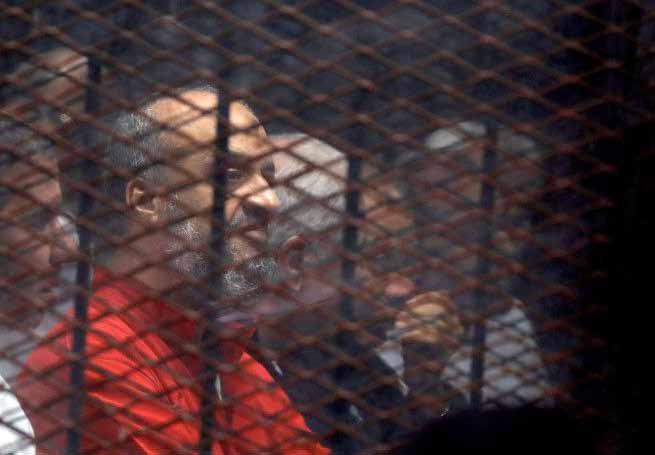
Hundreds of Iranian demonstrators have been killed in recent weeks as the country’s largest protest movement in a generation shows no signs of dying down. The grievances that lit the fire have morphed and grown. What began with the killing of a young Kurdish woman by Iran’s morality police, who had arrested her for not wearing a hijab, has spread both geographically and philosophically. What started as headwear is now about the country’s system of governance and the feeling among ethnic minorities that their lives are worth less.
Kurds have been at the forefront of the protests. Across the border, in Iraq’s autonomous northern Kurdistan region, the head of a militia comprising Iranian Kurdish fighters spoke to Majalla about the uprising and its implications.
As the nationwide unrest in Iran entered its second month, at least 250 protesters have been killed, including more than 30 children, with
10,000 arrested across 111 cities and towns. Hundreds of those arrested during the protests were sent to Iran’s notorious Evin prison in Tehran, where Human Rights Watch has for long accused the authorities of using threats of torture and denial of medical care. Most prisoners at Evin are political and most come from Iran’s ethnic minorities, so analysts were left horrified on 15 October when a suspicious fire broke out at the jail, killing at least eight prisoners and injuring dozens of others.
Iran’s top judge, Gholamhossein Mohseni Ejei, blamed the blaze on “agents of Iran’s enemy”, echoing an accusation from Iran’s Supreme Leader Ali Khamenei that Iran’s enemies (namely the US, Saudi Arabia, and Israel) were behind the demonstrations. Yet alongside this trio of usual suspects, Iranian leaders have also sought to lay the blame for the protests at feet of the Kurdish people. Not so, says Commander General of Kurdistan National Army, Gen. Hussein Yazdanpana, and
Commander General of Kurdistan National Army, Gen. Hussein Yazdanpana, and the leader of Kurdistan Freedom Party (PAK)
the leader of Kurdistan Freedom Party (PAK), whose fighters have been engaged in an armed struggle against the Iranian regime for decades.
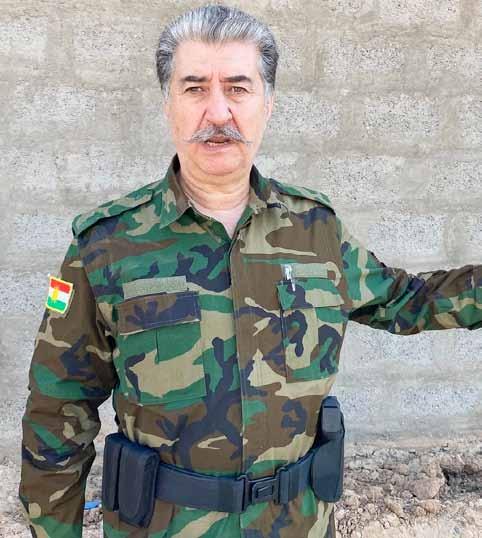
“The demonstrations and the uprising are the result of the regime›s oppression and crimes against the people,” he says. “The people themselves have taken to the streets to end the occupation, repression, and looting. We support them, but we have not made any armed contributions. However, if we have been able to organise the people’s uprising against oppression and occupation, it is a matter of pride for us, and we have fulfilled our duty. We are no different from our people, our country, and our land. We are all members of a nation. The people know that we back them.”
Yazdanpanah’s fighters were targeted by Iranian missiles in an unprecedented barrage against the group’s bases near Erbil at the end of September, during which he lost 14 fighters, with another 58 injured. “Please don’t say unrest,” he implores. “Say the people’s uprising against occupation and oppression that has accumulated for four decades. The uprising has been going on for more than a month. Not only has it not retreated - it has grown and expanded.
First [in] one city, the city of Zhina Amini, later it became two cities, now it covers the whole of Kurdistan and the whole of Iran… It’s clear that the people are rejecting the whole system. Their slogans are also directed at Khamenei. All the sacred things of the regime have fallen under the slogans of the people. There is no room left for any wing of the regime.”
He is correct to say that, in terms of geography, the uprising is now very large, and has spread like a wildfire, from the Kurdish regions to Tehran, from Baluchistan to Ahwaz. The Iranian regime has tried to create conflict and tension between Persians and the country’s minorities, as well as between minorities, such as between its Kurds and Azeris, but these efforts have failed, says Yazdanpanah.
“Unification is key in success,” he explains. “They [the protesters] are unified… The problem of the Kurds and Iran’s other ethnic groups is not just the current or future political system, but rather it is both the system and the model of the state. The system is a corrupt totalitarian system, and the state is not compatible with the population. It is a Persian nation-state with 12 Imams, while the population of the state is made up of six main ethnic groups: Kurds. Azeris, Persians, Arabs, Baluch’s and Turkmens. The Persians are sovereign. The rest are subjugated and oppressed under the policy of systematic assimilation.”
Observers based outside Iran, including human rights groups, say that since the uprising started, the heaviest state repression has
As the nationwide unrest in Iran entered its second month, at least 250 protesters have been killed, including more than 30 children, with 10,000 arrested across 111 cities and towns.
taken place in Kurdistan and Baluchistan, but repression of minorities is nothing new in Iran, says the General. “Before the current uprising the Arabs of Ahwaz were severely attacked and repressed,” he says. “Kurds and Baluchi, as well as the Arabs of Ahwaz, have suffered much more at the hands of Tehran and its policies. Both Kurds and Baluchi took to the streets symbolically from the beginning. However, the regime security forces attacked them and opened fire on them. The highest number of
Interviewmartyrs and wounded are in Baluchistan and Kurdistan. The Iranian security forces have treated Kurds, Baluchi, and Arabs of Ahwaz as if they were foreign occupying forces.”

On the crackdown in Kurdish areas of Iran, Yazdanpanah gives several reasons. “First, the Iranian forces have a chauvinistic hatred of the Kurds,” he says. “Iranian state forces have the right to kill Kurds whenever they see it fit. Second, the Kurds have been at the forefront of rejecting the Mullah state and its political system. The Kurds did not vote for the Islamic Republic and never submitted to Tehran. Tehran has ruled Kurdistan by force of arms and militarism for the past four decades. Third, there is no accountability for any crime in Kurdistan. Any soldier is free to kill a Kurd. Fourth, they are killing Kurds in other parts of Iran to frighten people off the streets.”
The brutality of the Iranian security forces is increasing the longer the protest movement continues, he explains. “They started with a tapper [a weapon used for hunting] which hits, injures, and kills people in groups and masses. With this weapon, people are beaten like
“The Iranian regime has tried to create conflict and tension between Persians and the country’s minorities, as well as between minorities, such as between its Kurds and Azeris, but these efforts have failed.”Kurdistan National Army fighters
birds. Kalashnikovs and pistols are among the weapons used by state forces against unarmed people. The guns escalate in usage when the resistance is more. In some cases, snipers are used. Snipers go to the big bridges and from there they target the active people.”
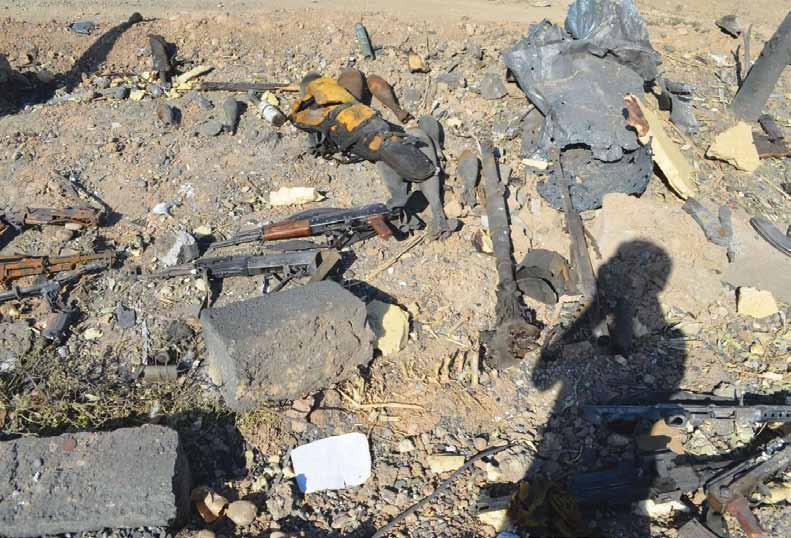
So far, Kurdish fighters based outside Iran’s borders have not intervened. There are good reasons for this, says the General. “This is the people’s uprising. Let the people decide for themselves what they want to do. We do not want Tehran to find an excuse for more killings and more repression. But we support our people. We will bring their voice and colour to the world. We have put the Peshmerga forces in the Kurdistan Region at the service of the fight against ISIS and they are an important army in the fight against ISIS. We also have a battlefield at the southern gate of Erbil, against the forces of Hashd al-Shaabi and the Quds Army.”
On Iranian state motivation, he says: “They are not winning on the ground, and they are not deceiving anyone [either] in Iran or outside.”
It seems clear that as the demonstrations in Iran
gather momentum, it is pitting the country’s women, youth, and ethnic minorities against one of the Middle East’s most oppressive police states, with somewhat inevitable violence, yet the mood on the streets continue feel revolutionary and defiant. The Iranian regime is facing its biggest political challenge in years and does not seem to know how to contain the protests. To divert the attention from the groundswell of anger in Iranian cities and towns, the authorities have sought to blame the conflict on forces outside its borders, hence its attack Kurdish bases Iraq on 28 September.
“Iran wants to demonstrate to the world that the protests are not relevant to what is happening inside the country and are instead driven by affairs from the outside,” says Yazdanpanah. “They are exporting this. They want the world’s attention to be taken away. It also aimed to destroy the armed wing of the Kurds in the east, the Kurdistan National Army. In October 2017, Iranian and Iraqi armies [Hashdi Shaabi] led by [the assassinated general] Qassem Soleimani attacked Erbil and the Kurdistan Region. Here, we and the Kurdistan Regional Government forces together prevented and defeated them. They still regret this failure and want to take
revenge but [we] will not be destroyed by these attacks. Our roots are in East Kurdistan and in the hearts of our people. The units of our party and our army are in the cities and neighbourhoods of our country, we are its offshoots. Even if they break the branches, what will they do with the roots?”
While the Kurdish fighters will not be broken, they still need better protection from international allies than they currently get, he says, arguing that criticism and sanctions
against Iran’s morality police, as imposed by Western nations this month, simply doesn’t cut it. “It takes an important political stance, not a soft and conservative statement,” he argues.
“People have risen in more than 90 Iranian cities. It’s on the street. But the US and Europeans say they are monitoring the situation. As for their position on drone attacks, there is much more to say. How can the US and its allies remain silent about such an attack on a front of the fight against ISIS and on an army that has played an important role in the fight against ISIS? The Kurdistan Region is protected by them. Where is that protection? The commanders and Peshmergas of the Kurdistan National Army who were martyred were all fighters against ISIS. How should they respond to their allies in the fight against ISIS?
“Now the Kurds of the east need the political action of the international community. The Iranians will not spare the Kurds. They intend to suppress the Kurds so that there will be no breath of freedom in Iran. There is a threat of genocide against our people. Similarly, in southern Kurdistan, Iran is a threat to the Kurdistan region and our forces. Even the
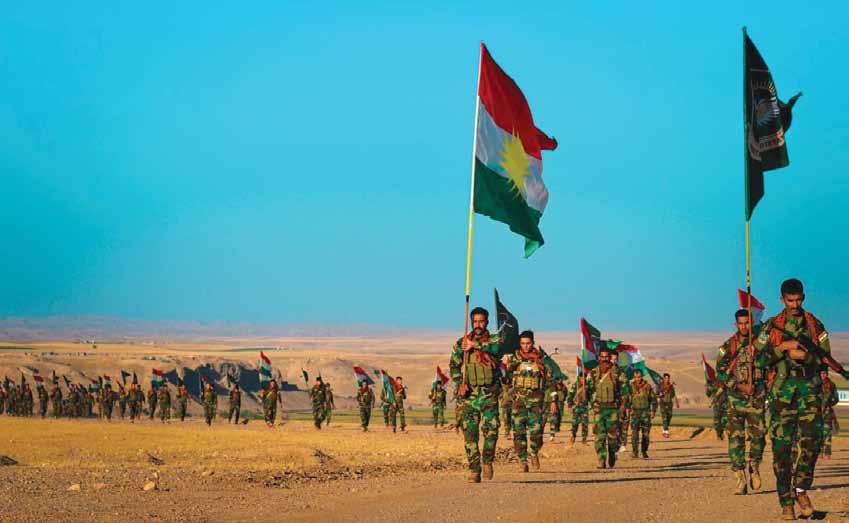
“Iran is a threat to the entire region. Decision-making states and the [UN] Security Council can protect both sides of Kurdistan. If they do not protect the Kurds, ISIS will revive again.”Kurdistan National Army fighters
The outcome of the missile attacks on a Kurdish base on September 2022 ,28.
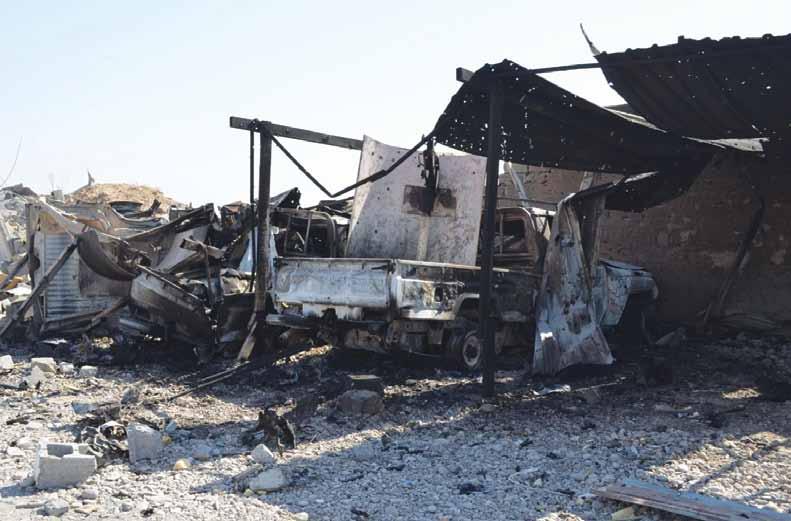
A total of 33 Iranian missiles and explosive drones targeted the region. Burial of our Martyrs
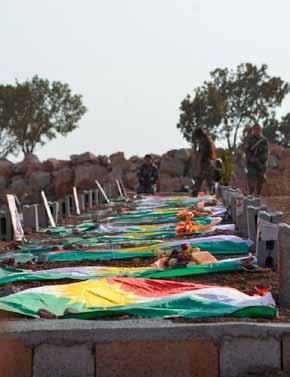
position of the allies is under threat. Iran is also a threat to the entire region. Decisionmaking states and the [UN] Security Council can protect both sides of Kurdistan. If they do not protect the Kurds, ISIS will revive again.”
The General says the international community
should consider re-imposing a no-fly zone on the area, more than 20 years after another such zone was lifted, the first having been designed to deter Iraqi leader Saddam Hussein from attacking the Kurdish north. “The solution is to close our skies and to stop Iran targeting us. Iran does not respect diplomatic relations, nor soft power. It only knows strength.
“I want our army to be armed with advanced anti-aircraft and anti-gun weapons. We are fighting terrorism, both group terrorism and state terrorism. We need weapons to protect our people from all forms of terror. The Revolutionary Guards, Iran’s main armed force, are recognised by the United States as a terrorist force. Wherever there is terror in the world, the head goes back to Tehran. So, we need weapons to fight both types. Let’s fight terrorism and ISIS and the Revolutionary Guards.”
As the interview draws to close, Gen. Yazdanpana is asked what he hopes to achieve. The answer is firm and immediate. “The right to freely decide the political destiny to my oppressed nation, an independent and democratic Kurdish State.”
Various countries are facing significant challenges today as a result of the Russian-Ukrainian war which erupted about ten months ago and has resulted in an energy crisis and high inflation rates, particularly in some European countries with strong economic ties to Russia. What are the war›s ramifications?
According to a Russian international relations re searcher, this war has direct effects on various countries, including the Arab world, but it varies by
country, with the Gulf countries that produce and export oil, energy, and gas being the least affected compared to other Arab countries.
«Arab energy-exporting countries such as Algeria and Iraq were more affected by the war due to the previous repercussions of the Coronavirus outbreak and the presence of civil unrest, in addition to their high population density, which means that they will suffer from major economic repercussions,» said Lana Badvan, a Russian researcher.
The following is the full text of Majalla›s phone in
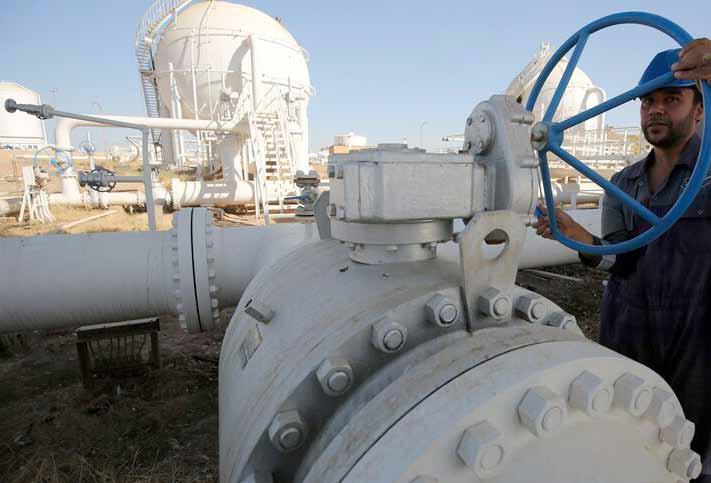
An Iraqi oil employee turns a valve as he checks pipelines at the Bai Hassan oil field, west of the multiethnic northern Iraqi city of Kirkuk, on Oct. 2017 ,19
 - AHMAD AL-RUBAYE/ AFP via Getty Images
- AHMAD AL-RUBAYE/ AFP via Getty Images
terview with Badvan, who lives in Moscow, Russia: - What Are The Effects of The Russian-Ukrainian War On The Arab World›s Economy?
First, we must distinguish one country from an other. True, the Arab world is one, but the impact of the Russian-Ukrainian war varies greatly from country to country. For example, countries produc ing and exporting energy, oil, and gas, such as the Kingdom of Saudi Arabia and the Gulf states, had their profits increased and were unaffected by the war, unlike the world as a whole. However, there are Arab energy-exporting countries such as Al geria and Iraq that will suffer as a result of high prices and the ramifications of the current war, as well as the challenges left by the outbreak of the COVID-19, in addition to the presence of civil un rest and a high population density.
- Which Arab Country is The Most Affected by the Consequences of the War?
Countries such as Egypt, Lebanon, and Syria will suffer direct consequences of the war because they rely on wheat and agricultural materials imported from Russia and Ukraine.
There are always Russian announcements stating that Russian-Egyptian trade in exports and im ports, particularly in agricultural crops, agricul tural production materials, and oil, will continue, but at a significant price increase for both coun tries. I believe that these countries› governments will have a difficult time overcoming this crisis due to the weakness of their economies, espe cially if the war continues for an extended period of time.
According to a Russian international relations researcher, this war has direct effects on various countries, including the Arab world, but it varies by country, with the Gulf countries that produce and export oil, energy, and gas being the least affected compared to other Arab countries.

- Which Countries Can Easily Avoid These Bur dens?
Countries such as Saudi Arabia and the United Arab Emirates can easily adapt to these burdens be cause they are productive and have great capabili ties, and thus they can rely on their multiple sources and economy to avoid the economic ramifications of Russia›s military operation within Ukrainian ter ritory.
However, the Maghreb countries, for example, can not do so and will suffer the economic consequences of the war, as will European countries. As a result, those countries can alleviate some, but not all, of the burdens of war. Demonstrations and turmoil in Eu rope have resulted in large economic blocs and eco nomic inflation, the causes of which are not only due to the war, but also to events in the decade before that.
- What, in your opinion, are the rescue plans that can be implemented in Europe and the Arab world to mitigate the effects of the war?
Tax cuts and wage increases in proportion to inflation rates must be included in the rescue plans. There are many ideas, for example, to raise the interest rates in banks, which causes people to deposit their money in banks, something that contributes to currency parity and inflation reduction, despite the difficulty of im plementing it at the moment.
Europe, for example, obtains gas and oil at high pric es from the United States, so it cannot reduce interest rates and is working on substantial financial assis tance distributed to the population in Germany and France, but this plan cannot be continued because the problem extends beyond next winter and may last for the next five years.

Nikolas Ferreira, 26, became a TikTok star in Bra zil by lashing out against “communist indoctrina tion” at his university and elsewhere. Raised in a favela in the interior city of Belo Horizonte, he says he was mocked by fellow students and even some teachers for his evangelical Christian faith,
which led him to oppose abortion, sex before mar riage, and what he describes as the broader cultural decay of the political class. “They want our Brazil to become a Canada, where there’s quality buses, quality schools, but there’s no morality?” he asked incredulously in a recent interview. “A society that is morally sick, but economically rich? I see that as an inversion of values.”
On October 2, Ferreira received 1.5 million votes in his run for a seat in Brazil’s Congres sional House of Deputies—500,000 more than any other candidate nationwide for that cham ber. He was part of a surprisingly robust con servative wave that also saw Brazilian President Jair Bolsonaro perform better in his reelection bid than most polls had suggested. Bolsonaro will now face former President Luiz Inácio Lula da Silva, a leftist who governed Brazil from 2003 to 2010, in an October 30 runoff vote for the presidency.
Although Lula placed first in the initial round of voting and remains a slight favorite to win, the election of Ferreira and others like him suggests that Bolsonaro and his culturally conservative, anti-globalist allies will be a force in Brazil for many years to come—standing alongside broad ly similar movements in Hungary, Italy, Swe den, and the United States, as well as elsewhere in Latin America. That means that, even if Lula wins, he will find it difficult to address pressing challenges such as rising Amazon deforestation and a Brazilian economy that has been shrinking or stagnant for most of the past decade.

The energized conservative vote helped Bol sonaro compensate, at least in part, for several headwinds working against his reelection bid. Approval ratings for the so-called Trump of the Tropics have remained below 50 percent throughout the COVID-19 pandemic, which has killed approximately 680,000 people in Bra zil, more than in any country except the United States.
The estimated number of Brazilians suffering from hunger or food insecurity has almost dou bled since the onset of the pandemic, to some 33 million people, although some sectors of the economy have started performing better in re cent months. Lula’s campaign has centered to a great extent on nostalgia for the prosperity of the first decade of the twenty-first century, a period that saw Brazil’s economy grow and poverty fall sharply, thanks in part to Chinese demand for the country’s commodities such as soy beans
and iron ore. Most polls have suggested that vot ers give Lula better marks than Bolsonaro for handling the economy and in other areas such as defending the environment and the rights of Blacks, women, and LGBTQ people.
That helps explain why the Bolsonaro cam paign has tried to shift the focus to the culture wars and chosen “Brazil above everything, God above everyone” as its slogan. The campaign’s tone and content sometimes seems to have been cut and pasted from the conservative agenda in the United States, and that’s no accident: some of the most prominent pro-Bolsonaro influenc ers live in South Florida, and Bolsonaro him self regularly shares Fox News clips on social media.
Such messages especially resonate with Brazil’s evangelical Christian community, which has grown from less than ten percent of the popu lation in 1980 to about 30 percent today. Bol sonaro’s most effective attacks have included re circulating Lula’s remarks in April that abortion “should be transformed into a question of pub lic health, for everyone to have the right” to the procedure. While some other Latin American countries, including Argentina and Colombia, have moved in recent years to liberalize abor tion laws, the issue remains politically toxic in Brazil, where 70 percent of people say they are against legalizing abortion, according to polls. After the closer than expected first-round elec tion result, Lula recorded a video attempting to put the matter to rest, saying, “I’m against abor tion.… I think almost everyone is.”
His campaign also circulated on social media a
On October 2, Ferreira received 1.5 million votes in his run for a seat in Brazil’s Congressional House of Deputies—500,000 more than any other candidate nationwide for that chamber.
statement affirming that Lula “believes in God … and does not have a pact with, nor has he ever spoken with the Devil,” in reaction to a flurry of false memes that gained traction even among some pro-Lula voters.
The tenor of politics in Brazil has shifted mark edly from Lula’s winning campaign of 20 years ago, when his runoff opponent was a centrist former health minister who won international plaudits for promoting the use of condoms amid the AIDS crisis. But Brazil has always been a
more socially conservative nation than its free wheeling international image suggested.
The right-wing military dictatorship that gov erned from 1964 to 1985 was relatively popular for much of its rule despite its brutality toward dissidents; indeed, Bolsonaro, a former army captain, has often spoken wistfully of that period and has named retired generals to several key roles in his government.
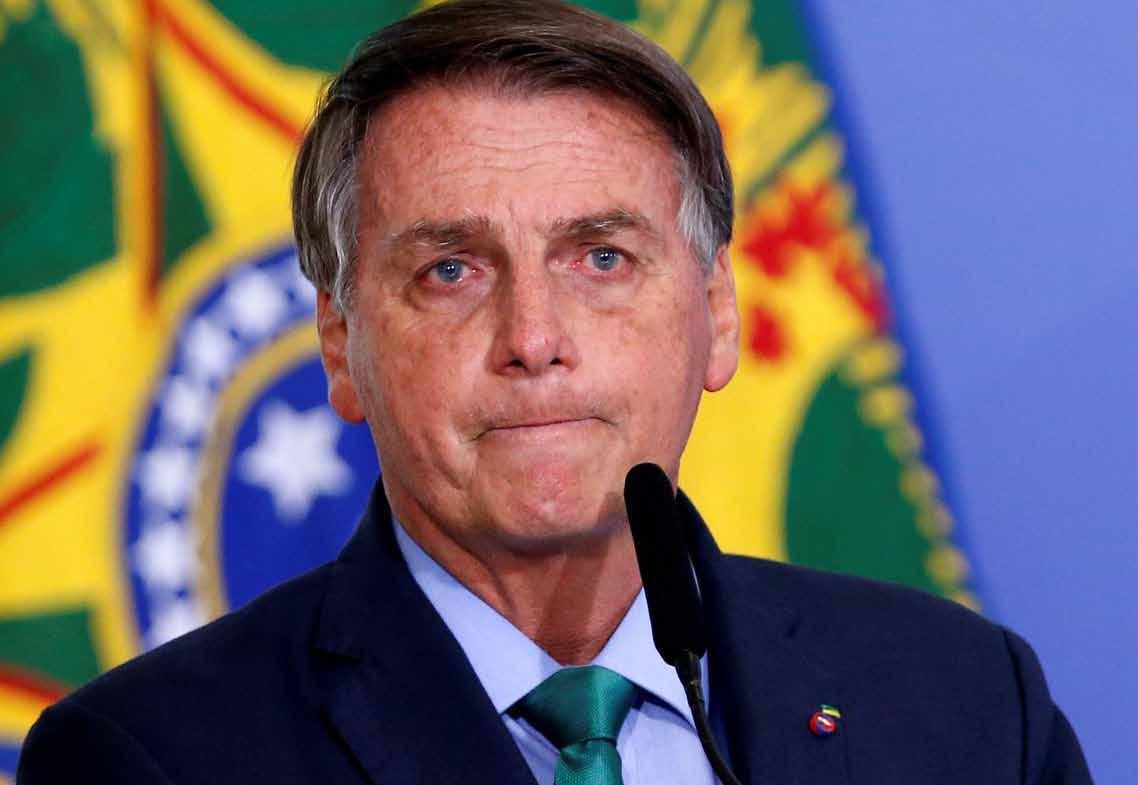
For the first 30 years after democracy returned, power mostly alternated between secular figures on the center-left and center-right. But Brazil’s economic collapse in the second decade of the twenty-first century, the worst in the country’s history, disgraced almost everyone in the previ ous political establishment, allowing a relative outsider such as Bolsonaro to emerge. His alli ance also includes farmers, small-business own ers, the wealthy, and those who simply do not want Lula’s Workers’ Party back in power. But exploiting the culture wars has time and again proved to be Bolsonaro’s most effective tactic for energizing his base.
That may not be quite enough for Bolsonaro to
: For the first 30 years after democracy returned, power mostly alternated between secular figures on the centerleft and center-right.
FILE PHOTO: Brazil?s former president and current presidential candidate Luiz Inacio Lula da Silva speaks during a meeting with sports representatives in Sao Paulo, Brazil, September 2022 ,27 REUTERS/Carla Carniel/File Photo

win a second term. His presidency has been a turbulent one, marked not only by his ineffective and often callous response to the pandemic but by a spike in Amazon deforestation to 15-year highs and constant conflicts with Brazil’s demo cratic institutions.
Meanwhile, Brazil is subject to the same trends that have led incumbent candidates and their al lies to lose 14 straight free and fair elections in Latin America, which was struggling with eco nomic dysfunction and social unrest even before the pandemic hit the region especially hard. Bol sonaro lost the first round to Lula by six million votes, a margin that will prove difficult to over come in the runoff.
But here again, the parallels with the United States are striking—even if Bolsonaro loses, the future of his movement seems assured.
His former women’s affairs minister, famous for declaring that “boys [should] wear blue, and girls wear pink,” was elected senator of the district that includes Brasilia, the capi tal. Bolsonaro allies will serve as governors of Brazil’s three most populous states, and his Liberal Party will have more seats than
any other grouping in both chambers of Con gress.
Brazil is Latin America’s largest country, and although it is separated from its neighbors by language and often hostile geography, there are signs of Bolsonaro’s style catching on else where. The next mayor of Lima, Peru’s capital and the third-largest city in the Americas, will be a businessman who rails against communism and says he wants to put Jesus Christ “at the head of the executive, legislative and judicial branch.”
Some leaders on the Argentine and Chilean right have clamored to have their pictures taken with members of the Bolsonaro family. Brazil’s size and visibility make it an attractive validator and fellow traveler for the global right generally; Hungarian President Viktor Orban, former U.S. President Donald Trump and others have offered their support.
But the consequences of these trends in Brazil are also of global significance.
The idea that Brazil could somehow turn back
the clock by electing Lula and recapture the optimism and promise of the early twenty-first century has always seemed fanciful. And even if Lula does win, he will be boxed in by a Con gress, and indeed a society at large, that is sig nificantly more conservative than it was during his first presidency.
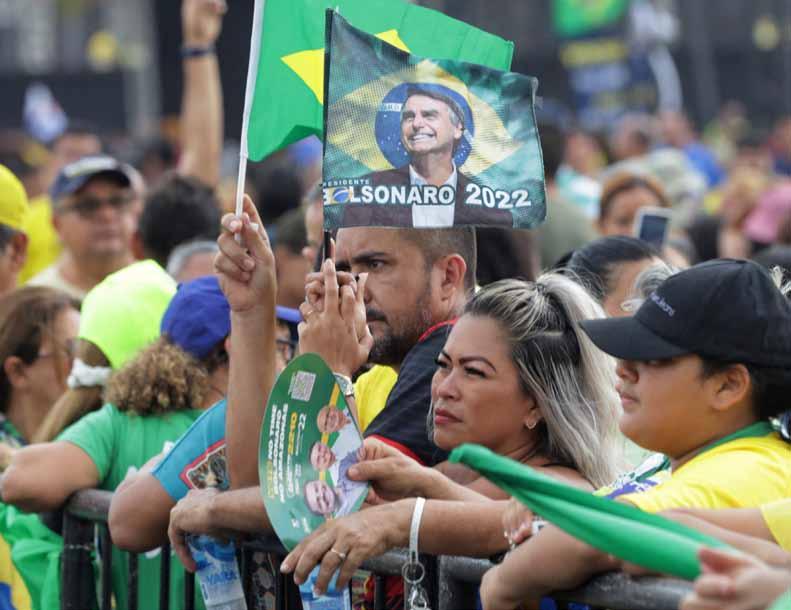
In such an environment, it will be very dif ficult for Lula’s government to marshal the considerable resources and political consensus needed to slow deforestation in the Amazon or pass reforms to alleviate misery and lift Brazil out of more than a decade of unimpres sive economic growth. Structural changes that investors have long yearned for, such as new trade deals or a reform of one of the world’s most complex tax codes, will likely remain on hold.
A large part of the political class will want to remain focused instead on issues such as gen der ideology and supposed trafficking of mi nors. “If a person is crazy and poor, it’s clear which [problem] you should solve first,” said Ferreira, the young congressman, referring to Brazil as a whole. A large, energized, and ap parently growing number of Brazilian voters think he’s right.
This article was first published in Foreign Affairs.
The idea that Brazil could somehow turn back the clock by electing Lula and recapture the optimism and promise of the early twenty-first century has always seemed fanciful.Supporters of Brazil’s President and candidate Jair Bolsonaro attend a campaign rally in Manaus, Brazil September 2022 ,22. REUTERS/Stringer NO RESALES. NO ARCHIVES

It seems that nobody knows what Russia wants from its invasion of Ukraine last February – not right after the invasion, not now, eight months later.
Back then, Russian President Vladimir Putin said the reason was that Western-leaning Ukraine was a threat and Russia could not feel «safe, develop and exist.»
His intelligence chief, Sergei Naryshkin, argued that «Russia›s future and its future place in the world are at stake.»
On the Ukrainian side, its President Volodymyr Zelensky said Russia wanted to swallow the whole of his country, and considered him an obstacle, and therefore «the enemy has designated me as target number one; my family is target number two.» His foreign minister, Dmytro Kuleba, said: “It›s crazy, sometimes not even they can explain what they are referring to.”
That was then, but, eight months later, as the war continues intensely, there seems to be no clear reason for the war. Particularly because Russia has yet to precisely define its end game. It was a “special military operation” but that is no longer the case. Moreover, there are no documented positions and goals because there have been no negotiations between the two sides.
This book, as its title shows, considered the Ukrainian war but a glitch in a centuries-old situation: “A Short History of Russia: How the World’s Largest Country Invented Itself, From the Pagans to Putin.”
Indeed, Russia is the only country that spans across two continents with: one-eighth of Earth›s inhabitable landmass; eleven time zones; borders on 16 countries; the ninth-most populous country in the world; and, the most populous country in Europe (150 million). Additionally, Russia as an entity has been existing since long time before the birth of Jesus Christ. The Greeks expanded their civilization to the Don River while later the Germanic Gothics established a kingdom that reached the Black Sea (and covered most of present-day Ukraine). Afterwards, Attila the Hun swept most of Western Europe, then the Vikings (Scandinavians) and the Rus (Russians) fought each other. Amid all of that strife, during the tenth century, Christianity arrived in present-day Kiev, which was the center of Slavic “Kievan Rus” kingdom. These complicated and ancient developments form the core of this book, and show that the presentday war between Russia and Ukraine is just part of centuries-old history.
The Russians, the book explained, “have proven to be inter-changing with inner and outer groups, with their
Book: «A Short History of Russia: How the World’s Largest Country Invented Itself, From the Pagans to Putin”
Author: Mark Galeotti
Publisher: Hanover Square Pages: 224
Price: Paperback: $14,99. Kindle: $9.99
share of symbols, myths and traditions.” Although the Russians have had to deal with groups from the east (Asians) and the south (Middle Easterners), it is the group to the west (Europeans) that has proven to be the most critical. Not only for being antagonistic, but, most importantly, for being the center of the Western civilization that has dominated the world for about 400 years.
This combination of the eastern, southern and western identities has become a continuous internal «war» that has been obscured by Russia›s external relations and problems.
Should the Russian elite endeavor to “civilize” the common people and to instill in them Western values of freedom and justice? Or should they embrace the non-Western culture based upon the teachings of the Orthodox Church?
The recent circulation of Putin’s statements on Ukraine, the West, conflicts and wars, obscures his views on cultural subjects as he tries to prove to the West that the Russians have pride and should be respected. Recently, he criticized what he called
the West’s “excessive freedom,” its spread of homosexuality and transsexuality, and its “anti-nature morality.”
It has always been about religious morality. But what religion?
Although the historical interactions between the descendants of the kingdoms of Kiev and Muscovy have been within the Orthodox Church (67 percent in Ukraine and 75 percent in Russia), Poland, and its Catholic Church (92 percent) stood out as an enemy.
Indeed, at the beginning of the 17th century, Poland invaded Russia, reached Moscow, and bordered the Ottoman Empire to the south.

In 2005, Putin revived the National Unity Day to commemorate the expulsion of the Poles from Moscow. This observance also symbolized the defeat of other enemies like the Asian Moguls, the Muslim Ottomans, the French Catholics (Napoleon Bonaparte during the 19th century), and the German Protestants (Adolf Hitler during the first half of the 20th century). All along, Orthodox Ukraine has been an ally of Russia, if not occupied by it.
Last July, Putin published an essay “On the Historical Unity of Russians and Ukrainians,” a manifesto for the invasion of Ukraine.
Events in the manifesto are similar to the accounts in this book, in the sense that they emphasized the relations between the peoples of today’s Ukraine and Russia since the 9th century, when Orthodox Christianity reached Slavic “Kievan Rus.”
As the book explained, in Putin’s manifesto, the Ukrainians are being exploited by the West. Putin, a born-again Orthodox Christian, believes his war against the West was not only about the expansion of NATO eastwards, but, also, about anti-Orthodox religion, culture and identity.
This book, as its title shows, considered the Ukrainian war but a glitch in a centuries-old situation: “A Short History of Russia: How the World’s Largest Country Invented Itself, From the Pagans to Putin.”Book Cover
Egypt has recently announced a series of initiatives aimed at addressing the negative effects of climate change, in its preparations to host the 2022 United Nations Climate Change Conference (COP27), slated for November in Sharm el-Sheikh.
In August, the Egyptian government announced a presi dential initiative to plant 100 million trees nationwide and started the first phase of this initiative this week.
The move is aimed to increase green spaces and reduce greenhouse gases to mitigate the repercussions of climate change on human life

The Egyptian govern ment has announced a presidential initiative to plant 100 million trees nationwide.

During a recent cabinet meeting, Prime Minister Mousta fa Madbouli reviewed the key elements of the presiden tial initiative to plant 100 million trees, beginning with an extensive afforestation campaign to plant trees along the country’s highways and main roads.
The Prime Minister said the initiative, which comes un der the auspices of President Abdel Fattah El Sisi, would coincide with the COP27 climate change summit.
The work of the initiative began with tree planting on both sides of highways and arterial roads.
Madbouli instructed the ministers concerned to draw up a plan to this end and stipulate the species of trees being planted on highways.
He also ordered building a central park in major cities to “provide a green lung in large areas for citizens in these cities.”
Magdi Allam, a Cairo-based environmentalist, told Ma jalla: “This initiative helps reduce greenhouse gases, as trees worldwide absorb about 16 billion metric tons of carbon dioxide annually, and produce oxygen. They also give an aesthetic appearance to the area in which they are grown and help purify the air from harmful dust.”
He went on to say that it is important to choose the ap propriate types of trees for this initiative, whether they are ornamental or woody trees.
Logo of COP27 climate summit which is due to be held in Sharm ElSheikh in November.
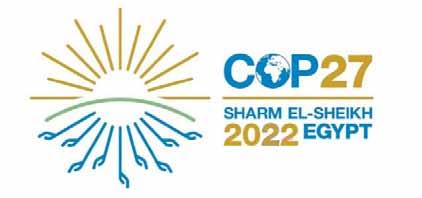
Hussein Abaza, adviser for sustainable development at the Ministry of Environment, told Majalla, “Egypt has recently launched several climate-related initiatives.”
He said that the government has launched a number of
green investments in all sectors, such as the monorail project, and is pumping more investments in the green hydrogen and water desalination sectors using renewable energy, all of which go in line with addressing climate change.
Governors will determine which roads are to be planted with trees as well as areas suitable for gardens.
Around 9,900 locations across Egypt, with a total area of 6,600 feddans (6,850 acres), are suitable for tree plant ing.
All governorates and civil society institutions are work ing together on this task, according to the Prime Minister.
The Environment Minister said the main aims of the ini tiative are to double green spaces nationwide, improve air quality, reduce greenhouse gas emissions, and improve public health.
Minister Yasmine Fouad stressed that the huge economic revenues of this initiative will come from the type of trees that will be planted.
Fouad went on to say: “The economic return of this initia tive is to have fruit trees such as olive or woody trees that can produce wood.”
The Egyptian government has not set a timetable for the end of the initiative to plant 100 million trees.
The initiative includes identifying the tasks of ministries and civil society organizations.
Another area of the initiative is to identify the water needs of the trees and their ability to absorb pollutants. Fouad said the Ministry of Environment would plant one
The move is aimed to increase green spaces and reduce greenhouse gases to mitigate the repercussions of climate change on human life
million trees through a number of programs, including the presidential rural development initiative “Decent Life,” planting the most polluted areas with trees, establishing seedbeds in governorates, as well as providing schools, universities, institutes and local units across the country with green trees.
Minister of Agriculture and Land Reclamation el-Sayed el-Quseir said in recent statements that his Ministry has exerted tireless efforts to plant forests, which can be ir rigated with treated wastewater.
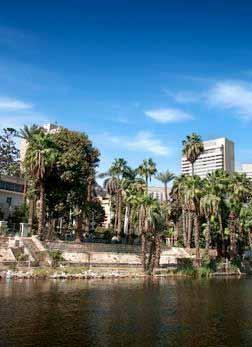
Several forests will depend on treated wastewater, el-Qu seir said, adding that the Ministry of Agriculture would determine the types of trees that will be planted and will provide the needed seedlings.
Egypt is stepping up its efforts to counter climate change, launching the 2050 National Strategy for Climate Change.
The strategy outlines the country’s vision on cutting car bon emissions in various sectors to maintain sustainable economic growth, promoting the use of renewable energy sources, producing energy from waste, and using alterna tive energy forms like green hydrogen.
The government is going for more green investments in all sectors, such as the monorail project or the electric train.
It has pumped more investments in the green hydrogen and water desalination sectors using renewable energy, all of which go in line with addressing climate change.
The Egyptian government has worked hard on encour aging farmers to adopt new genotypes and technologies
and build resilience to unusual weather events in the Nile Delta in order to address the effects of climate change on agricultural productivity, livelihoods and food security, according to a report issued by global management con sulting firm Boston Consulting Group.
Three years ago, Egypt launched another afforestation campaign as part of the “Live Green” initiative, launched by the Ministry of Environment under the auspices of the political leadership.
The initiative was aimed at protecting the environment against the negative impacts of climate change. Minister Fouad said that the government targets a 50 per cent decrease in the solid particle pollution rate by 2030.
Meanwhile, Minister of Planning and Economic Devel opment Hala el-Saeed confirmed the importance of the “National Initiative for Smart Green Projects” initiative in coordination with the Ministry of Environment and the
The initiative aims to in crease green spaces and reduce greenhouse gases in an attempt to mitigate the negative repercus sions of the climate change on human life.
Another area of the initiative is to identify the water needs of the trees and their ability to absorb pollutants.
Ministry of Local Development to deal with environ mental dimension and climate change.
This comes within the framework of achieving the sus tainable development goals and digital transformation through green projects to achieve its goals.
El-Saeed said that the government had prepared a nation wide map for green and smart projects and linking them with the finance agencies in order to attract the invest ments needed for them.
The UN Climate Change High-Level Champion for Egypt and Chairman of the National Arbitration Committee for Smart Green Projects Mahmoud Mohieldin said that the future of development has become strongly linked to how the country, society and enterprises can manage sustaina bility policies and familiarize themselves with the sources of technology, especially in digital transformation. This initiative is unprecedented as it includes many cat
egories, which are large, medium and small enterprises (within the framework of the Decent Life initiative), pro jects led by women, innovative and local development projects that have covered economic sectors.
Saudi Arabia also recently launched a re-greening initia tive to plant 100 million native trees, shrubs, and grasses by 2030. The initiative was announced at the Internation al Exhibition and Forum for Afforestation Technologies held in Riyadh in May.
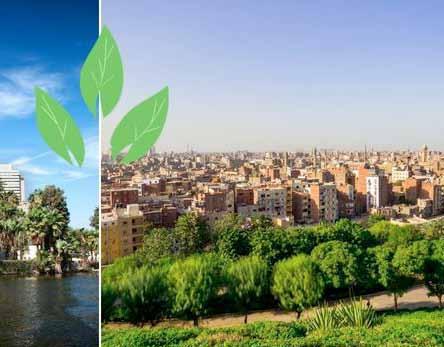
Governors will determine which roads are to be planted with trees as well as areas suitable for gardens.
Over time, the concept of the corporation has normalized this entity with a unique sort of existence. It evolved to be a key player in all modern markets and trade, providing us with our needs and wants. Another entity similar to that is the transnational corporation, but it differs in that it expands beyond its original borders.
By Saif Al-Abri
With this development came questions about how this entity should be treated and prosecuted, how liable are the constituents (individuals) of this entity etc. However, that’s not our focus but rather the relation between such transnational corporations and politics and in particular how national goals conflict with that of the corporation. We will focus on Shell PLC, a British multinational oil and gas company and the 6th largest supplier of oil (in a list that includes countries).
If one looks at their sustainability statement, it says, Powering Progress is our strategy to accelerate the transition of our business to net-zero emissions, in step with society, purposefully and profitably. It is designed to create value for our shareholders, customers and wider society, and integrates our longstanding commitment to contribute to sustainable development with our business strategy.
It seems that it›s not only a for-profit organization but also a moral actor trying to better its surroundings. Hence its production of yearly sustainability reports and transitions to net zero emissions. However, actions speak louder than words and, if one looks at their track record, another story shows up.
Firstly, we must establish, as Brian Anderson, Chair of Shell Nigeria, stated: “The government and the oil industry are inextricably entangled.” A clear example is what happened in Ogoniland in Nigeria,
as a response to rising protests against pollution caused by Shell. As the amnesty report stated, Shell wrote to the governor requesting intervention “to enable us to carry out our operations given the strategic nature of our business to the nation›s economy.”
The regime›s previous use of brutality was too apparent for Shell PLC not to predict the consequence of such a request. This led to a massive violent crackdown on protestors. The UK Supreme Court has just recently ruled in favor of Niger Delta communities against Shell.
Furthermore, in contrast to their sustainability statement, the Guardian reports that climate activists are suing Shell directors for the claims that directors haven’t devised plans in line with the Paris Agreement and their target of net zero emissions. Furthermore, US congressional investigation into climate disinformation has revealed «deceptive climate tactics.” For instance, Shell PR sent guidance stating, “Please do not give the impression that Shell is willing to reduce carbon dioxide emissions to levels that do not make business sense,” which questions their ambitious commitment.
As societies face social dangers or potential ones such as climate change or inequality, the development of corporations and transnationals has added another dimension to policy and government intervention.
Governments are now required to take into account corporations to achieve national targets such as equity and justice while taking into account how corporations can influence governance to debilitate such goals, as seen in Nigeria. It has to restrict corporations in some sense but at the same time ensure liberty and robustness so that it doesn›t fall into a command economy.




Despite the influx of many others, in cluding Italians, Armenians, English, and Swiss, the Greek community in Al exandria, Egypt, has a cultural and so cial influence that does not fade from the scene.
You don’t need much effort, or to search and scrutinize carefully, to discover the nature of that overwhelming and tangi ble presence, which is engraved in all of the city’s main squares, alleys, cafes, and restaurants.
Since ancient times, foreign tourists and members of the city’s Greek communi ty, as well as men of art, politics, and literature, have frequented Alexandria’s cafes, which were founded by the city’s Greek community.
Trianon Restaurant, also known as “Al exandria’s Groppi,” is a Greek-origin restaurant located in Alexandria’s city
center. The restaurant’s journey began in 1905 by offering a variety of sweets and being a cafe where people could gather for a quick meal, especially be cause of its location at the intersection of three main streets, Saad Zaghloul Street, Safeya Zaghloul Street, and the street overlooking Alexandria’s eastern port in Ram.
The iconic tea room in Alexandria hark
Trianon Restaurant, also known as “Alexandria’s Groppi,” is a Greek-origin restaurant located in Alexan dria’s city center.
(Credit: Sarah Gamal).The interior of Trianon is another attraction in Alexandria. The décor of the restaurant was described as an art-nouveau jewel.

(Credit: Sarah Gamal)
ens back to the city’s golden days as a cosmopolitan society. It occupies nearly half of the hotel’s ground floor block on the seafront side of Le Metropole Hotel on the Alexandrian Corniche.
It was originally owned by Yorgos Be relis, a Greek businessman who later partnered with another Greek family, the Dreikosen. The cafe was purchased by the Egyptian families Luca and Khodairy in the 1970s and the waiters spoke fluent French and Greek at the time.
The café/restaurant will transport you back to the glory days of what this tea room must have looked like once you enter through the dark wooden doors.
Tradition and originality combine in Tri anon reflect the architectural style intro duced by Greek communities, of which the Alexandrian people are proud up to
the present day.
Trianon expanded and modernized in the early 1970s, and it now has many branches in Cairo and Alexandria. Tri anon’s distinctive features have been preserved, including its picturesque de signs and decorations that combine Ara bic and Greek colors. Every piece of fur niture in the restaurant is considered to be a valuable “antique.”
Trianon Café in Alexandria took part in
“Trianon was once home to royalty, foreign dignitaries, and famous figures such as Om Kolthoum and Greek poet Cavafy.”
many important events, such as preparing food and sweets for the opening ceremo ny of the Library of Alexandria for kings and presidents from around the world, making sweets for all cultural events in the city, organizing meetings for the Ro tary Club Cosmopolitan, Metropolitan, Sunrise, Ladies Rotary, as well as pre paring food and sweets for large families both inside and outside Alexandria. Trianon was once home to royalty, for
eign dignitaries, and famous figures such as Om Kolthoum and Greek poet Cavafy. The signatures of its visitors can be found in a number of elegant volumes of visi tors, which are kept so that the site can testify to Alexandria’s heritage and its ancient Greek flavor, the most important of whom were: Queen Sophia of Spain, Prince Turki bin Abdulaziz, Mrs. Jehan
The interior of Trianon is another attraction in Alexandria. The décor of the restaurant was described as an artnouveau jewel. (Credit: Sarah Gamal).


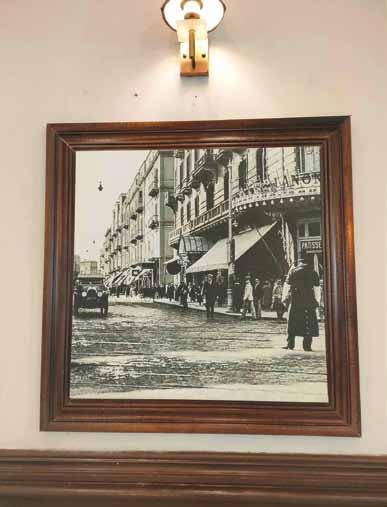
“The warmth of Trianon stems from the warmth of the Alexandrians, and this atmosphere strongly brings me back to my cosmopolitan Alexandria,” wrote Konstantinos Georgakopoulos, the Greek Minister of the Interior.A portrait of Boulevard Saad Zaghloul, Alexandria, 1920s, with the Trianon Café. (Credit: Sarah Gamal). Tradition and originality combine in Trianon reflect the architectural style introduced by Greek communities. (Credit: Sarah Gamal).
Al-Sadat, Princess Fawzia, Queen Na riman, and Adham Al-Naqeeb, Queen Nariman’s husband, and Sir Magdi Ya coub.
“The warmth of Trianon stems from the warmth of the Alexandrians, and this at mosphere strongly brings me back to my cosmopolitan Alexandria,” wrote Kon
stantinos Georgakopoulos, the Greek Minister of the Interior.
The antique piano, which dates back to 1911, occupies a corner that dominates the entire dining hall, and one of the oldest workers claims that “President Sadat’s daughter also loved to play it whenever she had lunch here.”

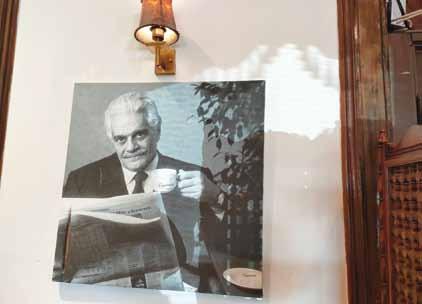
The dining hall was redecorated in 1987, but the rest of the restaurant’s walls are still as beautiful as they were 120 years ago. The confectionary section of the Trianon is filled with chocolates and sweets in glittery wrappers.
 Youssef Wehbe and Imad Hamdi (two Egyptian actors) have tea in Trianon, Alexandria, with a statue of Saad Zaghloul in the background. (Credit: Sarah Gamal).
Youssef Wehbe and Imad Hamdi (two Egyptian actors) have tea in Trianon, Alexandria, with a statue of Saad Zaghloul in the background. (Credit: Sarah Gamal).
“Trianon Restaurant, also known as “Alexandria’s Groppi,” is a Greek-origin restaurant located in Alexandria’s city center.”Photo of Omar El Shreif, an Egyptian actor in Trianon. (Credit: Sarah Gamal). A portrait of Boulevard Saad Zaghloul, Alexandria, 1920s, with the Trianon Café. (Credit: Sarah Gamal).
Riyadh is gearing up to host the most significant regional media event of the 22nd Arab Radio and TV Festival from 12 9 November, 2022. For the first time, the festival is taking place outside Tunisia, as Saudi Arabia is exceptionally organizing this year’s session given the massive media transformation taking place in the capital, where a number of the world’s largest studios were opened. The festival includes a number of key events such as an exhibition on the future of media “FOMEX.” It will host 300 Arab and regional participants and a thousand media people, with the goal of promoting Arab radio and TV productions. Majalla met with Dr. Mohammed Fahd AlHarthi, President of Saudi Broadcasting Authority (SBA) and the Arab States Broadcasting Union (ASBU), to talk about the festival, its events, and NEOM which are set to make a significant transformation in the Arab media industry.
Q. What are the implications of choosing Riyadh to exceptionally host the 22nd session of the Arab Radio and TV Festival?
Is it related to KSA Strategy of 2030?
A. Hosting the 22nd session of the Festival in Riyadh represents an exceptional precedent, in terms of sideline events, participating
The Arab States Broadcasting Union (ASBU).

Dr. Mohammed Fahd AlHarthi, President of Saudi Broadcasting Authority (SBA) and the Arab States Broadcasting Union (ASBU).
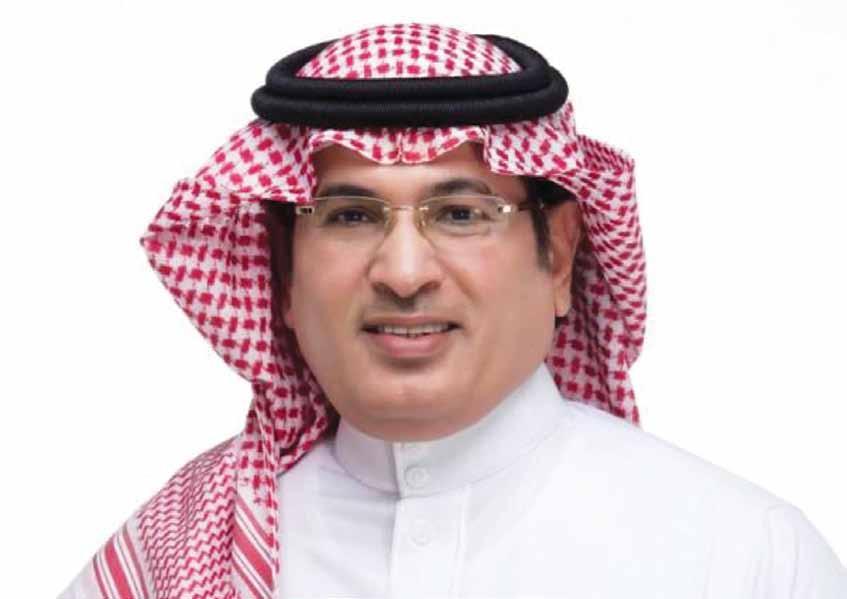
companies and a large attendance of more than one thousand Arab media professionals, intellectuals and thinkers. The festival is a major driver of Saudi ambitions in transforming the media landscape and enriching the cultural scene. It would be a positive force towards modernization and development, and a tool to make various national strategies successful and to regionally and internationally promote them in accordance with Saudi Vision 2030
Q. The slogan of the 22nd session, “Media in a Transforming World,” indicates that some urgent issues will be addressed by the forum accompanying the festival. Can you tell us more about the most prominent issues?
A. Sure, there are some issues to be discussed in the festival’s 22nd session, among which are the international transformations and their future impact on media tools and techniques, with the participation of many individuals and media organizations around the world.
The festival includes a number of key events such as an exhibition on the future of media “FOMEX.”
It will host 300 Arab and regional participants and a thousand media people, with the goal of promoting Arab radio and TV productions.
Participants will also address the Arab audiovisual landscape, promotion of TV and radio productions under the fourth industrial revolution, and review research papers and studies on advancing and enriching Arab media with further successful experiences. The festival will also tackle production fields, the news industry, and engineering, along with challenges faced by radio and TV systems.
Q. The Festival coincides with Riyadh becoming an international media beacon as well as the inauguration of MBC studios. What does the Saudi Broadcasting Authority seek to achieve in the festival? Will there be new addition this year?
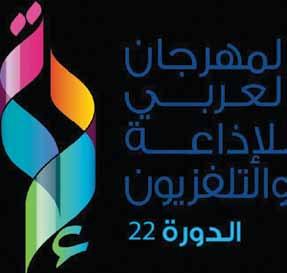
A. SBA works on many fronts all of which aim to achieve the main goal of hosting the prominent media event, that is, to highlight the KSA regional and international status, and to present Arab and Islamic civilizations, their depth and foundations as derived from Islamic teachings. We seek to achieve many goals and to demonstrate the Saudi economic and

developmental advance which has made the country an attractive and influential force of investment. The Festival will be attended by more than 1000 media professionals from around the world. It will also introduce the significant opportunities and governmental support provided to broadcast sector. It will moreover, emphasize the Saudi values of tolerance, coexistence, openness to diverse cultures, and strengthen ties with active regional and international organizations.
Q. The event comes after intensive efforts by SBA, which culminated in winning the Arab Media Excellence Award. What does this award signify?
A. In fact, receiving the Arab Media Award reflects the significant support granted by the wise leadership of KSA to media broadcast work according to Saudi Vision 2030. It is a proof of the success of plans and programs that we are working on to uphold media values, and enhance Saudi’s leading role and competitiveness in the industry. The award makes us more responsible in the coming period to present everything that promotes media industry.
Q. What is SBA’s future strategy in light of the significant Saudi media transformation?
A. SBA’s future strategy targets developing the administrative and media system to be in line with Vision 2030 and the huge progress of the media. It focuses on innovations and the creation of media content that appeals to the audience of SBA platforms. The strategy also supports media efforts and plans that enhance communication among various local, regional and international media actors as well as an exchange of expertize. It also fosters coordination of efforts to promote the Saudi knowledge sector and reinforce the creative and civilized rise of all Saudi sectors.
The festival is a major driver of Saudi ambitions in transforming the media landscape and enriching the cultural scene.Dr. Mohammed Fahd Al-Harthi, President of Saudi Broadcasting Authority (SBA) and the Arab States Broadcasting Union (ASBU) (right) and Dr. Fahd bin Hassan Al-Aqran, Director of Saudi Press Agency. Credit: Dalia Assem Logo of the 22nd Arab Radio and TV Festival
production? Why doesn’t it achieve its due global reach?
A. In fact, the recent political, economic and social developments in the Arab region have immensely influenced all forms of media production. This resulted in producing radio, TV or cinema content that was not intended to be meaningful or cultivate audience taste. Production companies are mainly driven by high financial profits, so they take advantage of events regardless of professionalism. In other words, capital is in control of private media productions, which resulted in poor Arabic content.
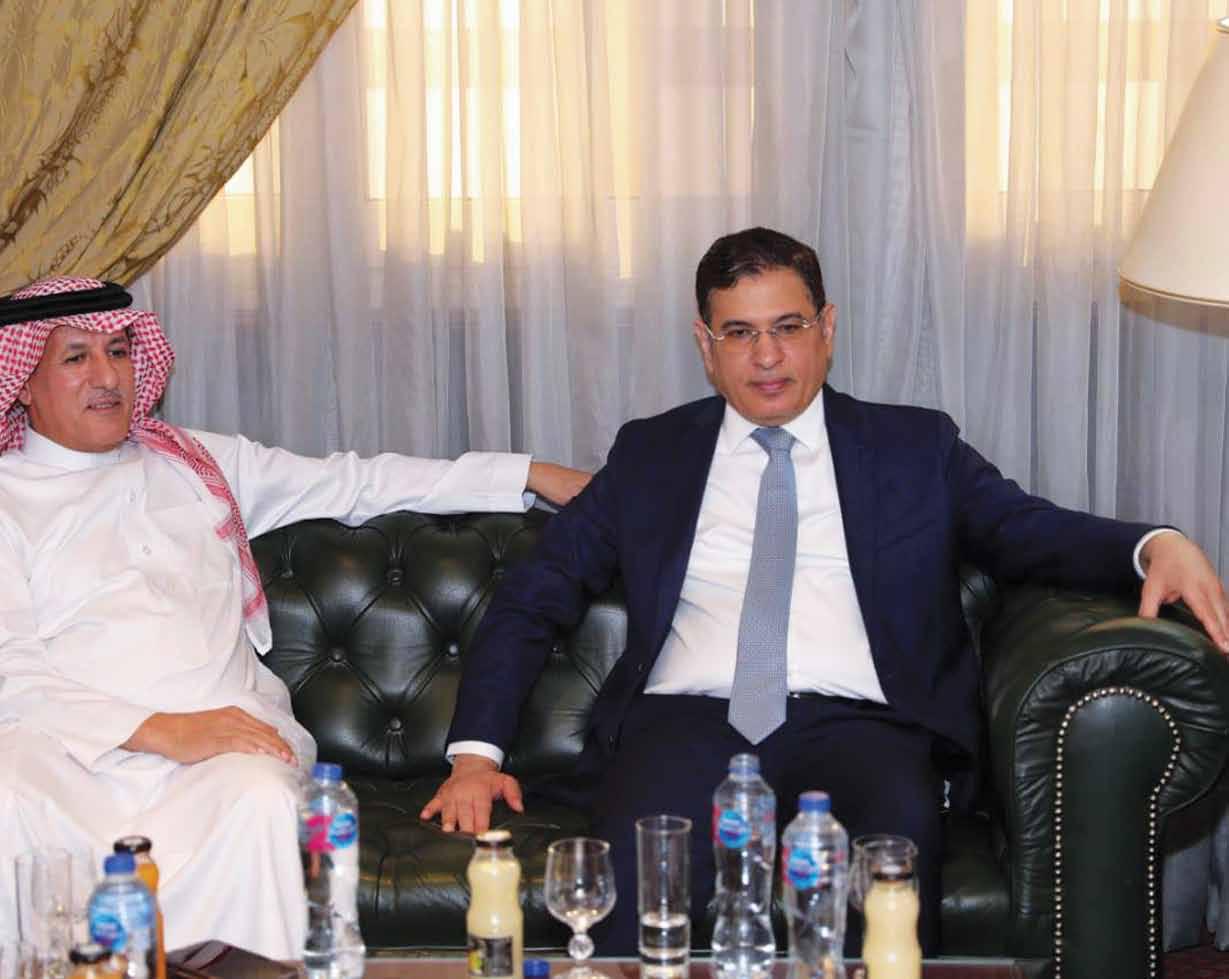
Q. Arab businesses are still absent in the media industry, especially in producing content that addresses kids and adolescents? Is this due to the public sector hegemony over media productions?
I don’t agree it is an “absence,” which indicates they don’t exist on the media landscape. I would rather say that they “timidly participate” in the industry. There are many reasons for that, such as the ongoing regional developments of wars, conflicts, and other aspects including lack of ideas and scripts.
As for the children part, I totally agree there is shortage in production for kids and adolescents. Some reasons are: insufficient budgets appropriated for distinguished productions in this category; neglect in setting up child programming departments; and, lack of long-term plans of content suitable for the target age. There is also the low profitability for private businesses, as these programs are costly.
Finally, it is unfortunate that some private companies still address children in old-
fashioned ways that are lagging behind the age of the Internet which has become a fundamental part of children’s lives.
Q. World attention is focused on the future of Neom. How would a promising Neom transform the media?

A. First of all, people now realize the significant potentials of such an ambitious project, and the amazing results it is expected to yield in various fields, one of which is the media. Neom will change how media landscape looks like by building a world-class comprehensive system of media techniques and equipment dedicated to TV production, games development and digital publishing.
It will be the biggest driver of an industrial revolution that will be set free of traditional media norms and present new global media prospects. We have seen that in the launch of Neom Digital Media Academy which aims to create a hub for state-of-art techniques and the highest international standards in the media. Its main goal is to educate future media professionals and empower them with fast-changing advancements in shooting, developing and producing short videos, in addition to distributing local content all over digital platforms.
Q. From your long media career, what are the biggest threats to media industry? Do you think that digital streaming platforms are threatening the production of meaningful and serious content? How can the hate speech propagated in these platforms be confronted?
To start with, I would like to clarify that the present technological development has two consequences. The first is the speed and scale in which any information or news is propagated, while the second is the proliferation of media outlets and the rise of new patterns that have affected and steered the media content. Digital media has become an active tool in shaping public opinion which is no longer a mere receiver of the information or the news, insofar as it has come to interact with the news and be affected intellectually, mentally and behaviorally.
Participants will also address the Arab audiovisual landscape, promotion of TV and radio productions under the fourth industrial revolution, and review research papers and studies on advancing and enriching Arab media with further successful experiences.
Thus, I believe digital streaming and content, whether shows, movies. etc., are the biggest threats to media industry.
As for how to confront hate speech, it should be via the same digital streaming means, by spreading awareness among the audience that this rhetoric is dangerous, and by clarifying the legal consequences of adopting such type of speech. Additionally, relevant governmental media efforts and initiatives should be supported.
Q. You have recently announced that KSA will host the headquarters of the Islamic Broadcasting Union. Can you tell us about your vision to develop joint Islamic media efforts?
A. Saudi hosting of IBU headquarters reflects
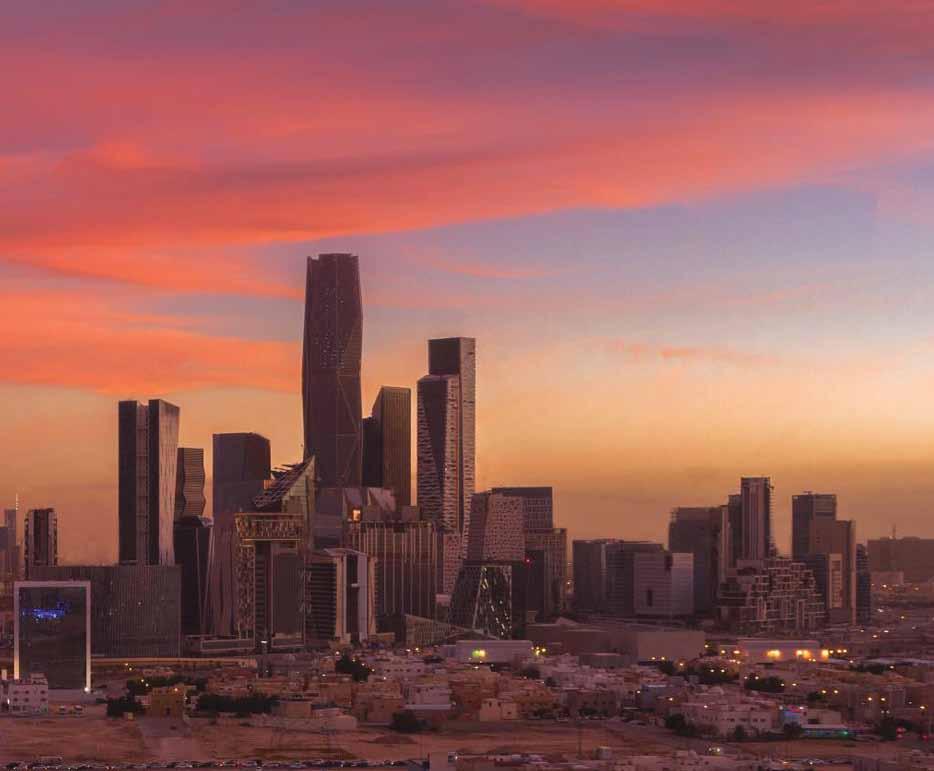
its leading role in supporting Islamic media. We are working on numerous initiatives that focus on transmitting knowledge and expertise to achieve future productions that can provide professional enrichment and encourage creative people. Another aim is to maintain harmony among the individuals in the industry based on cooperation and a unified media perspective that emphasizes moderate values, tolerance and rejection of violence.
These points were discussed in the IBU conference which was recently held in Cairo, where the largest training session was attended by 57 member states. By hosting the IBU headquarters, Saudi Arabia will play a leading role in reinforcing joint Islamic media efforts.

Abdul Latif Rashid was elected President of the Re public of Iraq, succeeding President Barham Salih, after months of bargaining, negotiations, and verbal battles.
Rashid received 157 votes in the first round of vot ing in the Iraqi parliament, compared to 99 votes for his rival, Saleh. Since neither of the candidates received the two-thirds vote required by the law, this necessitated a second round of voting, in which Rashid received 162 votes to 99.
Last Monday, the veteran Kurdish politician was sworn in at the Al Salam Palace, or Peace Palace, the presidential residence once occupied by Saddam Hussein.
Abdul Latif Rashid, also known as Latif Rashid, was elected after Masoud Barzani’s Kurdistan Dem ocratic Party agreed to withdraw its presidential candidate, Kurdistan Regional Minister of Interior Reber Ahmed.
The 78-year-old, British-educated hydraulic engi neer served as Nouri al Maliki’s Minister of Wa ter Resources from September 2003 to December 2010, overseeing a wide range of issues including irrigation, municipal and industrial water supply, hydropower, flood control, and environmental re quirements such as marsh restoration. Following Saddam Hussein’s regime’s demise in April 2003, the Minister oversaw significant improvements in the country’s water resource management.
Iraq’s newly elected president is a seasoned poli
tician who has held senior government positions throughout his career.
Rashid took his presidential oath on his offi cial Twitter account: “I swear by God, the Most High, the Great, to perform my legal duties and responsibilities with dedication and sincerity, to preserve Iraq’s independence and sovereignty, to look after the interests of its people, to ensure the safety of its land, sky, water, wealth, and federal democratic system, and to work to preserve public and private freedoms.” The judiciary’s independ ence and commitment to implementing legislation honestly and impartially, and God is a witness to what I say.”
Rashid stated in a televised speech on the occasion of his inauguration that he will soon announce his agenda for the Presidency of the Republic, promis ing to do everything in his power to bring political forces closer together and to facilitate dialogues. He also stated that he will work to protect the con stitution and to help resolve disputes between the Kurdistan region and the central government.
Born in the northern Iraqi Kurdish city of Sulay maniyah, he began his political career in his twen ties after joining the Patriotic Union of Kurdistan party, which was nearly the only party in the Kurd ish center in the various parts of Kurdistan in Syria, Iraq, Iran, and Turkey until the 1960s.
Mr. Rashid earned a bachelor’s degree in civil en gineering from the University of Liverpool in the United Kingdom and went on to earn a master’s degree and a doctorate in engineering from the Uni versity of Manchester.
From 2003 to 2010, he served as Iraq’s minister of
water resources before being appointed as a senior adviser in the PUK by the late president Jalal Tal abani, who was also the group’s founder and Mr. Rashid’s brother-in-law.
Rashid was elected Vice President and Executive Member of the Iraqi National Congress (INC) in 1992, and he was elected to the INC’s six-member leadership in 1998.
Aside from technical qualifications and engage ments, Rashid has been involved in Kurdish and Iraqi politics. During Saddam’s regime, he attended numerous conferences and official meetings on be half of Kurdish political parties and Iraqi opposition groups. Rashid has also represented Kurdish politics and Iraqi opposition groups in formal meetings with various international institutions and governments on behalf of Saddam.
It is worth noting that, since last year, Iraq has been embroiled in a political crisis between the Sadrist movement led by Muqtada al-Sadr and the “Coor dination Framework” (which includes the State of Law coalition led by Nouri al Maliki, the Fatah Al liance, and other pro-Iran factions), which had pre vented the election of a president or the formation of a government.
On August 29, 2022, the conflict escalated into violent clashes between the two parties in central Baghdad, killing 30 people and opening the door to a dangerous re-escalation.
Rashid, like former President Barham Salih, is de scribed as a voracious reader of Arabic literature, particularly Egyptian literature, and he is an elo quent speaker. He is also fluent in three languages: Arabic, Kurdish, and English.
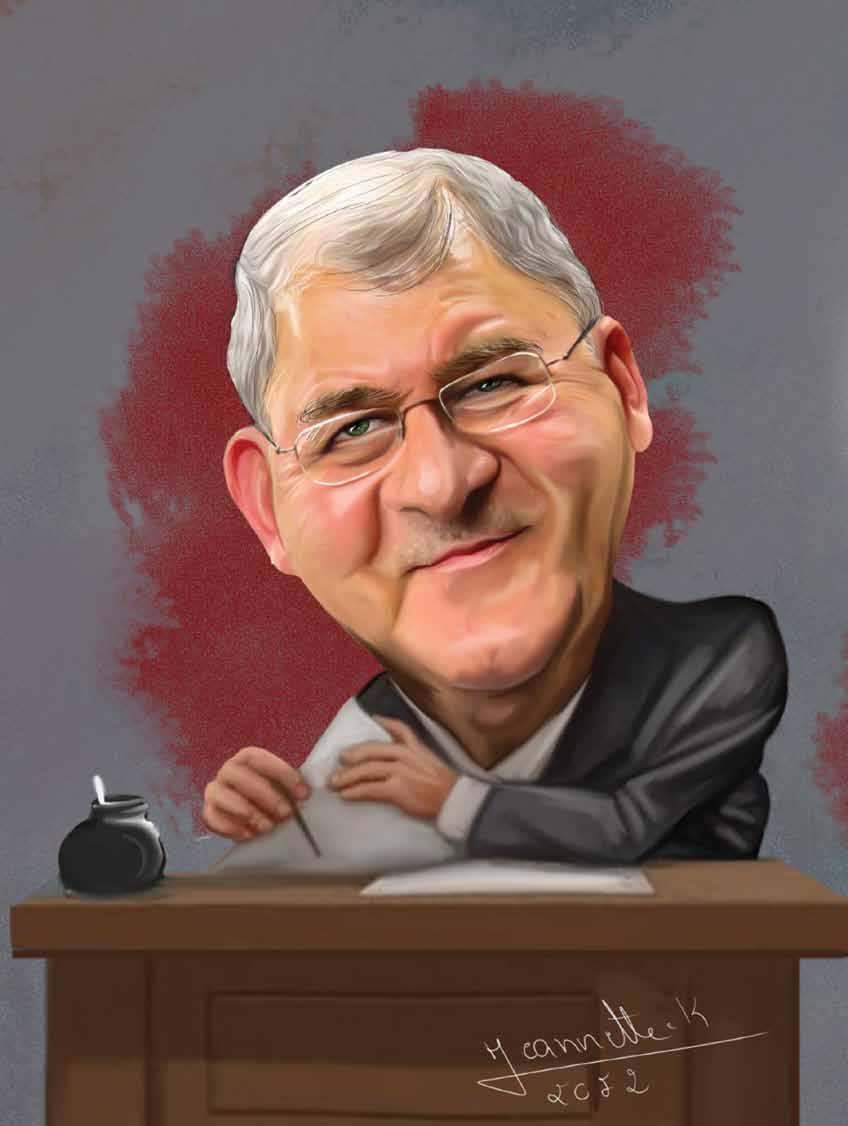

Nokia has picked a particularly challenging site for an upcoming network deployment: a place where temperatures range from 250 degrees to -208 degrees Fahrenheit, and there is no air to breathe whatsoever. But on the upside, the lack of atmosphere means no clouds to impair power generation by this future cell site’s solar panels.
Nokia’s plan to put a cellular network on the moon may seem like an Elon Musk-size publicity stunt.
But its lunar-LTE ambitions come with a NASA contract to solve a real off-world problem: Exist ing data systems won’t scale as increasing numbers of devices—and someday, people—work some 239,000 miles away from Earth and its typical com munications nodes.
“We know we need more than the communication we have right now,” says Thierry Klein, president of Bell Labs Solutions Research at Nokia Bell Labs. In 2020, NASA awarded Nokia a $14.1 million “Tip ping Point” contract to develop and deploy a test
LTE system that could pave the way to a lunar net work for use by astronauts living and working on the moon and in lunar orbit as part of NASA’s Artemis project.
“Most links from the moon are point-to-point Direct-To-Earth, which has worked well with our current space network infrastructure and number and type of lunar missions,” says Jason Mitchell, director of NASA’s SCaN Advanced Communi cations and Navigation Technology division, in an email. But that legacy system won’t keep up with the space agency’s ambitions for a longerterm, scaled-up presence on the moon—and, ul timately, Mars.
“Link management becomes a substantial chal lenge,” he explains. “So, we need a solution to scal ing and to smartly flow data where it needs to go, i.e., not all data needs to come back to Earth.”
Nokia, however, is starting on a much smaller scale than a lunar base. Its first beyond-Earth cell site will fit on the compact automated Nova-C lander that the Houston space startup Intuitive Machines plans to launch next summer on a SpaceX Falcon 9 rocket as part of its IM-2 mission—which will also deliver a tiny rover that will use this network to talk to the lander.
“We provide all the parts,” says Klein. “We provide the terminal that goes on the rover, the antenna that goes on the rover, the fully integrated network equip ment that goes on the Nova-C lander.”
He cites better throughput as the most immediate up grade, predicting 50 Mbps performance up to about 3 miles away on a 1.8 GHz frequency that Bell Labs picked for, among other reasons, reduced interfer ence with radio astronomy.

Klein says the network gear attached to the side of the Nova-C is about the size of a deep-dish pizza box and includes two redundant units.
“The starting point is a commercial Nokia small cell product,” Klein says. “We’ve done a lot of modifi cations from a maintenance, operational, reboot per spective”—for example, including software harden ing to resist radiation interference.
The receiver on the rover, meanwhile, is about the size of two iPhones stacked together.
“When we started this project, that was a few years back,” Klein says. “4G, from our perspec tive, was definitely the right starting point to
New Jersey-based Bell Labs—the storied research center founded in 1925 by Western Electric and the company then known as American Telephone & Tel egraph that became a Nokia property in 2016—started working toward this goal well before NASA called. In 2018, it signed a deal with Vodafone Germany to provide a lunar network for Mission to the Moon, a private mission by a Berlin firm then named PTScien tists that would have delivered two Audi-built rovers near the landing site of Apollo 17, where American astronauts left their last footprints on the moon in De cember 1972.
That effort, in turn, built on work Nokia did for Alpha bet’s Project Loon, the Google parent firm’s ultimately unsuccessful effort to provide broadband from a flock of autonomous balloons 11 to 16 miles up in the sky. PTScientists went insolvent in 2019 and that mission didn’t happen, but Intuitive Machines seems much fur ther along. Its debut IM-1 mission is now projected to launch sometime in the first quarter of 2023.
Success on IM-2, says Klein, “should open the door and validate that we can do this.” Future missions could bring multiple-node networks, 5G included, to future missions.
As NASA’s Mitchell writes, this Tipping Point project “provides the first steps on a potential path to commer cial service capability at the moon.”
Ground-bound users will also benefit, Klein predicts. “With all of the things that we’ve had to do for the equipment on the moon, we also have lessons learned that we can bring back to terrestrial environment,” he says. “If you think of a mine or an oil rig or a remote wind farm, there’s a lot of extreme industrial environ ments on earth.”
This article was originally published by Fast Company.
“Most links from the moon are point-to-point Direct-ToEarth, which has worked well with our current space network infrastructure and number and type of lunar missions.”Credit: (TNS)
Emotional well-being is important for our health: it strengthens our immune system, speeds recovery from health problems, and reduces the risks of chronic disease.

So it’s probably no surprise that emotional well-being
seems to contribute to living longer. It’s linked to a 20% lower risk of premature death from all causes among healthy people.
Why might feelings of contentment, happiness, satis faction with life, optimism, and fulfillment have health perks? They help counteract the effects of life’s negative emotions and stresses. “If you’re plagued by negative
thoughts, depression, anxiety, and fears, it pounds you daily. Your immune response drops, and your body is in a constant state of stress, which is associ ated with chronic inflammation, chronic disease, and premature death,” says Nancy Etcoff, a happiness psychologist and assistant professor of medicine at Harvard Medical School.
Finding ways to enhance your well-being can be challenging. Fortunately, guidance is just a few clicks away.
More than 350,000 apps -- programs that run on your computer, tablet, smartphone, or wearable tech (such as smartwatches) -- are geared toward consumer health. They aim to help with everything from man aging chronic disease or medication regimens to pro viding instruction and motivation to maintain healthy lifestyle habits or activities. Many of those activities can improve your well-being.
We don’t have conclusive evidence that the use of such apps in itself boosts your well-being. But it could help you on your journey. “When you use an app that promotes well-being, it means you’re open to change. It’s a good starting point,” Etcoff says.
Apps that support emotional well-being include those that focus on any of the following activities.
Cultivating happiness and gratitude. Research sug gests that 40% of your happiness is under your con trol. Happiness apps often include affirmations, med itations, and suggestions for activities that promote happiness -- such as keeping a gratitude journal, performing acts of kindness, or getting better sleep, which are all associated with improved mood.
Exercising. Moderate-intensity exercise, such as brisk walking, helps manage stress and decrease de pression and anxiety. Exercise apps often track the number of steps you take and the number of min utes you’re moving each day. They may also provide complete workouts with exercises, videos, or even live classes that you can follow at home.
Meditating. Meditation elicits the relaxation re sponse, a calming meditative state that lowers blood pressure, heart rate, breathing rate, oxygen con sumption, and levels of adrenaline and the stress hormone cortisol. You can find apps to guide you through many kinds of meditation, such as mindful ness (which focuses on awareness of the present mo ment), guided imagery, yoga, or transcendental med itation (in which you use a repeated sound or phrase to help you empty your mind).
Getting more sleep. Sleep deprivation is associated
with depression, anxiety, and many other health problems. Sleep apps help you track how long you sleep and offer tips on improving sleep hygiene, such as going to sleep and waking up at the same time each day, and avoiding food and drinks at certain times.
New evidence suggests that a particular model of artificial intelligence (AI) holds promise for predict ing and guiding a person’s future well-being. The research, published online June 20, 2022, by Aging, was led by a company called Deep Longevity and Harvard scientist Dr. Nancy Etcoff.
The AI model used in the study, called FuturSelf, is free and already online (https://futurself.ai). You simply answer few questions, and the AI sends back suggestions. “It assesses areas where you need help. Maybe you’re depressed, not exercising, not social izing, or not going to the doctor enough. You can see what’s bothering you and decide if you want to make tweaks in your life,” Etcoff says. “This may be one direction where self-help is headed.”

To find apps that promote well-being, look for ap proaches that appeal to you and are free (or offer a free trial period), have good reviews, don’t collect too much information from you, and are popular -- with hundreds of thousands or millions of down loads. For example, apps called Sleep Cycle: Sleep Tracker and Better Sleep each have more than 10 million downloads.
Other popular apps include Calm, Insight Timer, and Headspace for meditation; Nike Training Club: Fit ness or Adidas Training: Home Workout for exercis ing; and Presently or Three Good Things to maintain a gratitude journal.
This article was originally published by Harvard Health Letter.
More than 350,000 apps -programs that run on your computer, tablet, smartphone, or wearable tech (such as smartwatches) -- are geared toward consumer health.



























